|
Santa Rally or Time to Get Defensive? Can the economy hold up with Brent oil prices at $95/barrel? The S&P500® is up 11.8% on the year – making back some of the -19.33% losses of 2022. However, the market trend over the past two months has been negative, with stocks shedding -6.9%. Long-term bonds lost even more than stocks last year, with -26% returns, and continue to be problematic with elevated credit and duration risk. Will there be a Santa Rally, or will the stock slide continue? How do we protect our wealth when bonds can lose principal and be illiquid? Learn why Apple’s choices may be the determining factor in the Santa Rally, and why getting a decent yield on the safe side of our wealth plan without the risk is so tricky. In this blog we’ll cover: · Pros and cons of a more defensive plan · Why we must know what we own even it is professionally managed We’ll also outline time-proven 21st Century strategies that: · Earned gains in the Dot Com and Great Recessions (when most people lost more than half of their wealth), · Are enthusiastically recommended by Nobel Prize winning economist Gary S. Becker, · Steer clear of toxic bond losses, and, · Make buying low and selling high as easy as a pie chart Here is additional information on each point. Pros and Cons of Adopting a More Defensive Plan Cons: There is almost no downside in acting our age in our wealth plan. A lot of people think an aggressive pedal-to-the-medal approach is going to earn more gains. However, that can result in a very volatile ride on the Wall Street Rollercoaster – one that can jack our emotions around to the point that we do the opposite of what we’re supposed to do. We get disgusted with losses and sell low. Our exuberance and hope that stocks will shoot the moon entices us to buy high. On the other hand, a well-diversified plan can include hot industries that increase performance, while a regular rebalancing plan prompts us to capture gains high and buy low. We can even get a reasonable interest rate these days, though navigating the credit and duration risk is tricky. A time-proven, 21st Century system based on Modern Portfolio Theory takes emotions out of the picture. This easy strategy earned gains in the Dot Com and Great Recessions, when most people lost more than half of their wealth, and outperformed the bull markets in between. Pros to a Defensive, Diversified Plan: When we: · Keep a percent equal to our age safe, · Understand what is safe in a Debt World, · Are properly diversified, · Rebalance regularly to remain properly diversified, and, · Consider overweighting safer when there are economic storms on the horizon, We can keep earning gains, even in recessions. Wealth is like health. Eating right and exercising goes a long way to keep our bodies healthy. Smart fiscal habits create a rich life. How Did Nilo Earn Gains in the Great Recession? Overweighting safe when we are concerned about the economy or the stock market heading south means that we could actually earn gains (like Nilo), when most people lose half or more of their wealth. In December 2007, I sent out an email to our subscribers warning that the coming recession was looking to be very stark. We suggested overweighting an additional 20% safe. A 60-year-old overweighting 20% safe, would only have 20% at risk in equities. If stocks lose half, that plan loses 10% on the at-risk side, and earned 8% or more on the bond side. As importantly, there was enough cash on hand to buy stocks low. This is one of the most important benefits of keeping enough safe. Most people don’t buy low because they can’t. They are out of cash. They have to hope and pray that their plan crawls back to even – something that took almost seven years in the Great Recession, and 15 plodding years in the Dot Com Recession. Life without cash is dire, and our FICO score hits rock bottom to boot. We Must Know What We Own Getting a defensive plan isn’t as easy as asking for one. One of my coaching clients sent over her holdings for a 2nd opinion. Even though she had told her financial advisor that she had very little risk tolerance, she was actually invested as if she were a teenager with most of her assets (87%) in stocks. This plan would have lost -61% in the Great Recession. As we get closer to retirement, we can’t afford to lose half or more of our wealth and then hope and pray for years to earn back losses. So, rather than having blind faith that someone else has set up a defensive plan for us, it’s important to know exactly what we own and understand the risk levels that we are exposed to, and what a truly, safe, diversified and defensive plan looks like. (I offer an unbiased 2nd opinion through our private coaching program. Email [email protected] for pricing and information.) Learn Time-Proven 21st Century Strategies Buy and Hold has become a popular mantra again, largely because we have been in a secular bull market since the bottom of the Great Recession (March 2009). However, it’s important to never confuse a bull market with wisdom. In the pandemic, the Dow Jones Industrial Average plunged -35% in just five weeks (between Feb. 19 and March 23, 2020) before the first restrictions were announced – before Main Street knew what was going on. (The big money always moves first.) Of course, the U.S. Treasury Department and Federal Reserve, along with reserve banks around the world, printed up a lot of cash/debt to keep the world from falling into a Great Depression during the pandemic. That is not going to happen the next time around. In fact, the U.S. Congress is currently at risk of a government shutdown on October 1, 2023, and the Federal Reserve Board is continuing to tighten monetary policy, with another potential rate hike in November or December. There is a very hot debate with policymakers on how to reduce the debt, balance our budgets better and get on a path to better fiscal husbandry. The debt, combined with political chaos, has caused two rating agencies to strip the U.S. of our AAA rating (Fitch Ratings on August 1, 2023 and S&P Global on August 5, 2011). The Santa Rally Typically, the last quarter of each year is positive on Wall Street. However, December 2018 was the worst performance of that month (-9.2%) since the Great Depression. What happened? Apple: Lessons from 2018. Recently, Apple made headlines when the Chinese government restricted the use of iPhones in their government agencies. Since 19% of Apple’s revenue comes from Greater China, this is putting the company at risk of a revenue decline greater than the -1.4% percent they saw in the most recent quarter’s earnings. This is an issue because the stock market is heavily reliant on Apple’s share repurchases. The cold shower investors took in December 2018 had a lot to do with Apple curtailing their buybacks without any warning. In 2018, Huawei became the #2 smart phone maker (by units) behind Samsung and ahead of Apple. As a result of Huawei’s popularity in Asia, Europe and most countries around the world (outside of North America), Apple’s Christmas quarter in 2018 saw revenue decline by 5%. Will Huawei’s resurgence dip into Apple sales and profits this Christmas, too? (Learn more in my Apple blog; click to access.) However, Apple’s woes in China are not the only risk factors that could put coal in investors’ stockings this Christmas. The risks to the economy include the following: · $95/Barrel Oil · FOMC Rate Hike (Nov. or Dec.) · Student Loan Payments Start Up Again on October 1, 2023 · There is a risk of a Government Shutdown in the U.S. effective October 1, 2023 · Inverted Yield Curve (100% correlated with recessions) · Union Strikes – SAG-AFTRA, UAW, hotel workers are all on strike · Recent credit Downgrades of the USA & Banks, with 3 high-profile bank failures · Bonds: Duration and Credit Risk · Empty Office Buildings and Malls, with High Borrowing Costs · BRICS Currency and Alliance · When the U.S. Sneezes, the World Catches a Cold The current predictions of 2.1% GDP growth in 2023 weren’t banking on $95/barrel oil or a government shutdown. High oil prices are highly correlated with recessions. Again, rather than trying to market time or Buy & Hold, proper diversification and strategic rebalancing will keep us safe, hot, protected and diversified. Of course, we must also know how to navigate a world where bonds are losing more than stocks. Long-Term Debt Risks Credit risk and duration risk remain a problem in bonds and dividend-yielding stocks. Over half of the S&P500® is at or near junk bond status. The traditional ways of getting safe, including bonds, money market funds, CDs, or annuities, are not as risk-free as we might be hoping. That is why we spend one full day on What’s Safe at our Financial Empowerment Retreat. Getting safe is tricky, but doable. There are a number of steps that we can take to protect our wealth on the safe side of our liquid portfolio, which is not supposed to lose principle. NASDAQ Stocks Took 15 Years to Recover As we get closer to retirement, we just can’t afford to lose half or more of our wealth. $1 million caved into $450,000 (-55%) in the Great Recession, and sank to a low of $220,000 (-78%) in NASDAQ stocks during the Dot Com Recession. It took almost 7 years for the Dow Jones Industrial Average to crawl back to even in the Great Recession. It took 15 years for NASDAQ stocks to recover back to their highs set in March of 2000. Again, having a diversified plan that we rebalance once, twice or three times a year means that we are able to capture gains in the bull market, while also protecting ourselves from the losses of the bear market. Bottom Line Losing half or more of our wealth makes it hard to make ends meet, plunges our FICO score, and might even make us vulnerable to losing our lifestyle and home. The economic horizon remains too murky, with too many risks, to see clear skies and smooth sailing into the Santa Rally. Fortunately, rather than gambling on an uncertain tomorrow, we can embrace a recession-proof, economic-storm-resistant wealth plan today. It’s important to fix the roof while the sun is still shining. When we wait for the headlines, it’s too late. "Many people, including educated men and women, often get into trouble when they neglect to follow simple and fundamental rules of the type provided [by Natalie]. This is why I recommend them with enthusiasm." Professor Gary S. Becker. Dr. Becker won the 1992 Nobel Prize in economics for his theories on human capital When someone says, “let me do it for you,” prepared to be oppressed. When someone says, “let me teach you how,” prepare to fly. Join us at our Oct. 7-9, 2023 Financial Freedom Retreat. Learn nest egg strategies, how to get hot and diversified and what's safe in a Debt World. You'll even discover how to save thousands annually with smarter big-ticket choices. Yes, it's a complete money makeover. Email [email protected] to register. Learn the 15+ things you'll master and read testimonials in the flyer (link below) and on the home page at NataliePace.com.  Join us for our Online Financial Freedom Retreat. Oct. 7-9, 2023. Email [email protected] or call 310-430-2397 to learn more. Register with friends and family to receive the best price. Click for testimonials, pricing, hours & details.  Join us for our Restormel Royal Immersive Adventure Retreat. March 8-15, 2024. Email [email protected] to learn more. Register with friends and family to receive the best price. Click for testimonials, pricing, hours & details. There is very limited availability, and you must register early to ensure that you get the exact room you want. This retreat includes an all-access pass to all of our online training for a full year for two! 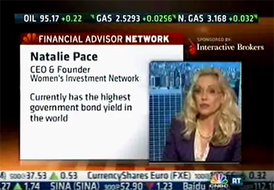 Natalie Wynne Pace is an Advocate for Sustainability Financial Literacy & Women's Empowerment. Natalie is the bestselling author of The Power of 8 Billion: It's Up to Us and is the co-creator of the Earth Gratitude Project. She has been ranked as a No. 1 stock picker, above over 835 A-list pundits, by an independent tracking agency (TipsTraders). Her book The ABCs of Money remained at or near the #1 Investing Basics e-book on Amazon for over 3 years (in its vertical), with over 120,000 downloads and a mean 5-star ranking. The 5th edition of The ABCs of Money and the 2nd edition of Put Your Money Where Your Heart Is were released in 2021. Follow her on Instagram. Natalie Pace's easy as a pie chart nest egg strategies earned gains in the last two recessions and have outperformed the bull markets in between. That is why her Investor Educational Retreats, books and private coaching are enthusiastically recommended by Nobel Prize winning economist Gary S. Becker, TD AMERITRADE chairman Joe Moglia, Kay Koplovitz and many Main Street investors who have transformed their lives using her Thrive Budget and investing strategies. Click to view a video testimonial from Nilo Bolden. Check out Natalie Pace's Apple Podcast. Watch videoconferences and webinars on Youtube. Other Blogs of Interest Barbie. Oppenheimer. Strikes. Streaming Wars. Netflix. Monero: A Token of Trust? 13 Lifestyle Choices to Reduce Waste, Pollution & CO2 & Save a Boatload of Dough. China Bans Apple 11-Point Green Checklist for Schools. Artificial Intelligence and Nvidia's Blockbuster Earnings Report Biotech in a Post-Pandemic World Summer Sweepstakes 10 Wealth Secrets of Billionaires and Royals. What Happened to Cannabis? Bank of America has $100 Billion in Bond Losses (on Paper) The USA AAA Credit Rating is on a Negative Watch. Lithium. Essential to EV Life. I'm Just Not Good at Investing. Investors Ask Natalie. Should I Buy an S&P500 Index Fund? Investors Ask Natalie. Bonds Lost More than Stocks in 2022. Tesla's Model Y is the Bestselling Car in the World. 2023 Company of the Year Sell in May and Go Away? Do Cybersecurity Risks Create Investor Opportunities? Writers Strike, While Streaming CEOs Rake In Hundreds of Millions Annually. I Lost $100,000. Investors Ask Natalie. Artificial Intelligence Report. Micron Banned in China. Intel Slashes Dividend. Buffett Loses $23 Billion. Branson's Virgin Orbit Declares Bankruptcy. Insurance Company Risks. Schwab Loses $41 Billion in Cash Deposits. The Debt Ceiling Crisis. What's at Stake? Fiat. Crypto. Gold. BRICS. Real Estate. Alternative Investments. BRICS Currency. Will the Dollar Become Extinct? Empty Office Buildings & Malls. Frozen Housing Market. The Online Global Earth Gratitude Celebration 7 Green Life Hacks The Debt Ceiling. Will the U.S. Stop Paying Bills in June? Fossil Fuels Touch Every Part of Our Lives Are There Any Safe, Green Banks? 8 Fires the Federal Reserve Board Needs to Put Out. 7 Ways to Stash Your Cash Now. Lessons from the Silicon Valley Bank Failure. The 2 Best Solar Stocks Which Countries Offer the Highest Yield for the Lowest Risk? Rebalance By the End of March Solar, EVs, Housing, HSAs -- the Highest-Yield in 2023? Are You Anxious or Depressed over Money? Why We Are Underweighting Banks and the Financial Industry. You Stream all the Channels. Should You Invest, Too? NASDAQ is Still Down -26%. Are Meta & Snap a Buy? 2023 Bond Strategy Emotions are Not Your Friend in Investing Investor IQ Test Investor IQ Test Answers Bonds Lost -26%, Silver Held Strong. 2023 Crystal Ball for Stocks, Bonds, Real Estate, Cannabis, Gold, Silver. Tilray: The Constellation Brands of Cannabis New Year, New Healthier You Tesla's $644 Billion Fall From Mars Silver's Quiet Rally. Save Thousands Annually With Smarter Energy Choices Is Your FDIC-Insured Cash Really Safe? Money Market Funds, FDIC, SIPC: Are Any of Them Safe? My 24-Year-Old is Itching to Buy a Condo. Should I Help Him? The 12-Step Guide to Successful Investing. Gardeners Creating Sanctuary & Solutions in Food Deserts. The Bank Bail-in Plan on Your Dime. Rebalancing Your Nest Egg IQ Test. Answers to the Rebalancing Your Nest Egg IQ Test. Important Disclaimers Please note: Natalie Pace does not act or operate like a broker. She reports on financial news, and is one of the most trusted sources of financial literacy, education and forensic analysis in the world. Natalie Pace educates and informs individual investors to give investors a competitive edge in their personal decision-making. Any publicly traded companies or funds mentioned by Natalie Pace are not intended to be buy or sell recommendations. ALWAYS do your research and consult an experienced, reputable financial professional before buying or selling any security, and consider your long-term goals and strategies. Investors should NOT be all in on any asset class or individual stocks. Your retirement plan should reflect a diversified strategy, which has been designed with the assistance of a financial professional who is familiar with your goals, risk tolerance, tax needs and more. The "trading" portion of your portfolio should be a very small part of your investment strategy, and the amount of money you invest into individual companies should never be greater than your experience, wisdom, knowledge and patience. Information has been obtained from sources believed to be reliable. However, NataliePace.com does not warrant its completeness or accuracy. Opinions constitute our judgment as of the date of this publication and are subject to change without notice. This material is not intended as an offer or solicitation for the purchase or sale of any financial instrument. Securities, financial instruments or strategies mentioned herein may not be suitable for all investors. Barbie. Oppenheimer. Strikes. Streaming. Netflix. Barbie smashes box office records for Warner Bros. Writers have a tentative deal with the studios. Actors are still on strike. Last night, the Writers Guild announced a tentative deal with the studios, which could potentially end the writers’ strike. The SAG-AFTRA union is interested in the details of the deal, which haven’t been disclosed yet. However, the actors’ strike continues. The production downtime since May is hard on the wallets of the actors, writers and everyone involved with the filmmaking process. It could also severely impact studio earnings in 2024 and beyond, if the strike isn’t resolved soon. All of the networks have programmed unscripted TV shows for the fall, which are unaffected by the strikes. Meanwhile, Barbie is breaking box office records for Warner Bros. It is Warner Brothers biggest hit in its 100-year history — bigger than Harry Potter and the Deathly Hallows Part II was for the studio. Oppenheimer is a close second to Barbie with $925.9 million vs. $1.38 billion in global box office receipts (as of early September 2023). Special shoutout to director Greta Gerwig for smashing many records, including opening weekend box office (female director) and highest grossing live-action picture (female filmmaker, global). The success of these two epic hits will boost the Q3 2023 earnings reports for both Warner Brothers, the studio that made Barbie, and Universal Pictures, the studio that released Oppenheimer. (Universal is part of NBCUniversal, which is owned by Comcast.) Does that make them great investments? Below are just a few of the things we’ll cover in this blog. Barbie (Warner Bros.) and Oppenheimer (Universal) Earnings Writers Strike a Deal. Actors are Still on Strike Streaming vs. Theatres Valuations Investing Barbie (Warner Bros.) and Oppenheimer (Universal) Earnings Warner Bros. Discovery and Comcast Corporation, the parent companies of Warner Bros. and Universal Pictures, are both heavily indebted. Both companies had flat year-over-year revenue in the second quarter (like most of the studios on the stock report card). Having an extra billion plus in revenue will certainly do wonders for both studios. However, it’s also important for investors to realize the impact that corporate debt has on these companies. Warner Bros. Discovery has been paying $900 million in interest semiannually, and lost $7.37 billion in 2022 (while paying CEO David Zaslav $39.3 million in 2022 and $246.6 million in 2021). Both Comcast and Warner Bros. Discovery are using proceeds from their blockbusters to repurchase debt that comes due in 2024 and 2025. S&P Global rates Warner Bros Discover BBB-, the lowest rung of investment grade. As an interesting aside, Christopher Nolan switched to Universal from Warner Bros. during the pandemic, when he protested Warner Bros. policy to release directly to streaming platforms (at a time when people couldn’t go to the theaters). There is talk that Warner Bros. is trying to woo him back… Nolan is quite a blockbuster box office phenomenon, with worldwide receipts of almost $6 billion (gross). Warner Brothers is expanding the London studios that made Barbie, the Harry Potter franchise and House of Dragon. DC studios will be based there, once complete. Writers Strike a Deal The Writers Guild began their strike on May 2, 2023 and struck a tentative agreement on September 24, 2023. In addition to compensation, artificial intelligence played a very central role in the dispute. The strike is not officially over until the WGA and the members approve of the terms, and the 3-year deal is inked. There haven’t been any details released about the agreement over AI. The deal could provide a framework for a settlement with the actors. Actors are Still on Strike The SAG-AFTRA strike officially commenced on July 14, 2023. However, the members have been walking the picket line with their writing colleagues since the onset of the writers’ strike. Streaming compensation and residuals have reduced the income of both writers and actors. Although both builds have superstars, the majority of the membership doesn’t make a living wage for Los Angeles, California. The Writers Guild alleges that the median wage of writers has actually gone down -14% over the past few years – -23%, if adjusted for inflation. If the writer’s deal with the studios includes strong limitations or an outright curtailment of artificial intelligence use for creative purposes, this bodes well for an early end to the SAG-AFTRA strike. We will know a lot more in the coming days. While this will be great news for hundreds of thousands, if not millions, of people whose livelihoods depend on the film industry, it is unlikely that it is going to solve the problem of inflation and unaffordability in the expensive cities, where a great deal of the studios are located. Streaming vs. Theatres Theaters are doing better than they were during the pandemic. However, they are still far below the revenue of 2019. AMC Theatres had revenue at $5.5 billion in 2019. The revenue was just $3.9 billion in 2022. An annual increase equal to the 15.56% revenue jump in the second quarter could get the sales up to $4.5 billion. Certainly, Barbie and Oppenheimer, which were both exclusive theatrical releases will help. However, a key piece of the puzzle is that AMC Theatres wasn’t able to turn a profit even before the pandemic. The company has lost money every year since 2016, with the exception of a slim net profit of $110.10 million in 2018. Valuations The studios, including Disney, Netflix, Comcast (Universal) Apple, Paramount and Warner Bros. Discovery are characterized with flat revenue growth and, with the exception of Paramount and Warner Bros. Discovery, high valuations. Price-earnings ratios range from 29 (Comcast and Apple) to 45 and 66 (Netflix and Disney, respectively). The average P/E is 17. Should a company like Netflix, with $4.5 billion in net profits in 2022, be valued at $168 billion? Should Apple, a company with negative year-over-year sales growth of -1.40% and almost $100 billion in net income be valued at $2.73 trillion – particularly when almost 20% of its revenue comes from China and there is a new government ban on iPhones? Email [email protected] if you would like a copy of our updated Studio Stock Report card. Investing In addition to having the most exciting upcoming quarterly earnings, Warner Bros. Discovery also has one of the more attractive price-earnings ratios, at just 7.23. However, as I’ve indicated above, an investment in Warner Bros. Discovery is also dogged by debt. Any company that has been around for a century is going to have a lot more legacy issues than the streaming and Internet-based companies that have only been around since the 1990s. Apple’s debt is elevated as well, with a debt-equity ratio of 1.81, largely because the company liked to park its European and Asian profits overseas, and borrow money in the USA (at a very attractive interest rate) to pay dividends and buyback its own stock. A quick end to the writers and actors strike could save the day for the studios in terms of content. However, the high valuations, debt loads, streaming wars and flat earnings make most investments in this space highly volatile. Most of the streaming stocks have seen their share prices soar and plunge repeatedly over the past five years. In addition to a hostile environment for the industry, the macro environment could be facing headwinds. The economy and the stock market have been very resilient this year, after losing almost -20% in 2022. Consumers, federal spending and businesses investing in technology and artificial intelligence have kept the economy strong amidst the rapid rise of interest rates. However, a lot of that support is expected to weaken. Student loan payments start up on October 1, 2023, after the pandemic pause. Delinquencies on credit card debt and auto loans are starting to rise. The personal savings rate has plunged to historic lows. And the government is about to be shut down because Congress can’t agree on spending cuts. GDP growth is expected to continue at a pace of about 2.1% for the full year. The Conference Board is predicting a mild recession in the first two quarters of 2024. Investors are forward-thinking. So if Wall Street pros sees signs of a contraction, stocks will weaken. 21st-century recessions have caused severe plunges in the major indices. Stocks sank -35% between Feb. 19 and March 23, 2020, during the pandemic. A million dollar investment in the Dow Jones Industrial Average dropped to $450,000 in the Great Recession, and plummeted to a low of $220,000 in the NASDAQ Composite Index, during the Dot Com Recession. One of the biggest risks to market performance for the rest of 2023 remains the ban that the Chinese government put on Apple iPhones. Apple buybacks have been a huge driver of stocks for over a decade, with almost $625 billion shares repurchased by the company. The last time Apple had a downside surprise was in the last quarter of 2018. The company ceased their buybacks that December, without any warning or announcement. The S&P500 took a dive of -9.18%, which was the worst December performance since the Great Depression. Of course, 2019 was a spectacular year for stocks. However, the secular bull market we’ve enjoyed since 2009 is quite abnormal. While staying invested for continued upside is a good idea, protecting your wealth from a downturn is also prudent. Market timing doesn’t work, but proper diversification and regular rebalancing with a capture gains mentality has been a spectacular 21st Century nest egg strategy. Bottom Line Investing in the smash hits Barbie and Oppenheimer is a lot more complicated than just cashing in on their box office success. A lot of the proceeds from both of these films is going to pay down debt. The industry is experiencing upheaval due to strikes and streaming wars. And many of the company stocks are overpriced. With individual companies, including studio stocks, it’s a great idea to have a buy low and capture gains high – early and often – policy. For your nest egg, it’s a good time to make sure that you have the right amount safe, are properly diversified and know what is safe in a year when banks have failed and bonds lost more than stocks. Full disclosure: I own positions in Warner Bros Discovery. It's time to learn the life math that we all should have received in high school. Join us at our Oct. 7-9, 2023 Financial Freedom Retreat. Learn nest egg strategies, how to get hot and diversified and what's safe in a Debt World. You'll even discover how to save thousands annually with smarter big-ticket choices. Yes, it's a complete money makeover. Email [email protected] to register. Learn the 15+ things you'll master and read testimonials in the flyer (link below) and on the home page at NataliePace.com.  Join us for our Online Financial Freedom Retreat. Oct. 7-9, 2023. Email [email protected] or call 310-430-2397 to learn more. Register with friends and family to receive the best price. Click for testimonials, pricing, hours & details.  Join us for our Restormel Royal Immersive Adventure Retreat. March 8-15, 2024. Email [email protected] to learn more. Register with friends and family to receive the best price. Click for testimonials, pricing, hours & details. There is very limited availability, and you must register early to ensure that you get the exact room you want. This retreat includes an all-access pass to all of our online training for a full year for two!  Natalie Wynne Pace is an Advocate for Sustainability Financial Literacy & Women's Empowerment. Natalie is the bestselling author of The Power of 8 Billion: It's Up to Us and is the co-creator of the Earth Gratitude Project. She has been ranked as a No. 1 stock picker, above over 835 A-list pundits, by an independent tracking agency (TipsTraders). Her book The ABCs of Money remained at or near the #1 Investing Basics e-book on Amazon for over 3 years (in its vertical), with over 120,000 downloads and a mean 5-star ranking. The 5th edition of The ABCs of Money and the 2nd edition of Put Your Money Where Your Heart Is were released in 2021. Follow her on Instagram. Natalie Pace's easy as a pie chart nest egg strategies earned gains in the last two recessions and have outperformed the bull markets in between. That is why her Investor Educational Retreats, books and private coaching are enthusiastically recommended by Nobel Prize winning economist Gary S. Becker, TD AMERITRADE chairman Joe Moglia, Kay Koplovitz and many Main Street investors who have transformed their lives using her Thrive Budget and investing strategies. Click to view a video testimonial from Nilo Bolden. Check out Natalie Pace's Apple Podcast. Watch videoconferences and webinars on Youtube. Other Blogs of Interest Monero: A Token of Trust? 13 Lifestyle Choices to Reduce Waste, Pollution & CO2 & Save a Boatload of Dough. China Bans Apple 11-Point Green Checklist for Schools. Artificial Intelligence and Nvidia's Blockbuster Earnings Report Biotech in a Post-Pandemic World Summer Sweepstakes 10 Wealth Secrets of Billionaires and Royals. What Happened to Cannabis? Bank of America has $100 Billion in Bond Losses (on Paper) The USA AAA Credit Rating is on a Negative Watch. Lithium. Essential to EV Life. I'm Just Not Good at Investing. Investors Ask Natalie. Should I Buy an S&P500 Index Fund? Investors Ask Natalie. Bonds Lost More than Stocks in 2022. Tesla's Model Y is the Bestselling Car in the World. 2023 Company of the Year Sell in May and Go Away? Do Cybersecurity Risks Create Investor Opportunities? Writers Strike, While Streaming CEOs Rake In Hundreds of Millions Annually. I Lost $100,000. Investors Ask Natalie. Artificial Intelligence Report. Micron Banned in China. Intel Slashes Dividend. Buffett Loses $23 Billion. Branson's Virgin Orbit Declares Bankruptcy. Insurance Company Risks. Schwab Loses $41 Billion in Cash Deposits. The Debt Ceiling Crisis. What's at Stake? Fiat. Crypto. Gold. BRICS. Real Estate. Alternative Investments. BRICS Currency. Will the Dollar Become Extinct? Empty Office Buildings & Malls. Frozen Housing Market. The Online Global Earth Gratitude Celebration 7 Green Life Hacks The Debt Ceiling. Will the U.S. Stop Paying Bills in June? Fossil Fuels Touch Every Part of Our Lives Are There Any Safe, Green Banks? 8 Fires the Federal Reserve Board Needs to Put Out. 7 Ways to Stash Your Cash Now. Lessons from the Silicon Valley Bank Failure. The 2 Best Solar Stocks Which Countries Offer the Highest Yield for the Lowest Risk? Rebalance By the End of March Solar, EVs, Housing, HSAs -- the Highest-Yield in 2023? Are You Anxious or Depressed over Money? Why We Are Underweighting Banks and the Financial Industry. You Stream all the Channels. Should You Invest, Too? NASDAQ is Still Down -26%. Are Meta & Snap a Buy? 2023 Bond Strategy Emotions are Not Your Friend in Investing Investor IQ Test Investor IQ Test Answers Bonds Lost -26%, Silver Held Strong. 2023 Crystal Ball for Stocks, Bonds, Real Estate, Cannabis, Gold, Silver. Tilray: The Constellation Brands of Cannabis New Year, New Healthier You Tesla's $644 Billion Fall From Mars Silver's Quiet Rally. Save Thousands Annually With Smarter Energy Choices Is Your FDIC-Insured Cash Really Safe? Money Market Funds, FDIC, SIPC: Are Any of Them Safe? My 24-Year-Old is Itching to Buy a Condo. Should I Help Him? The 12-Step Guide to Successful Investing. Gardeners Creating Sanctuary & Solutions in Food Deserts. The Bank Bail-in Plan on Your Dime. Rebalancing Your Nest Egg IQ Test. Answers to the Rebalancing Your Nest Egg IQ Test. Important Disclaimers Please note: Natalie Pace does not act or operate like a broker. She reports on financial news, and is one of the most trusted sources of financial literacy, education and forensic analysis in the world. Natalie Pace educates and informs individual investors to give investors a competitive edge in their personal decision-making. Any publicly traded companies or funds mentioned by Natalie Pace are not intended to be buy or sell recommendations. ALWAYS do your research and consult an experienced, reputable financial professional before buying or selling any security, and consider your long-term goals and strategies. Investors should NOT be all in on any asset class or individual stocks. Your retirement plan should reflect a diversified strategy, which has been designed with the assistance of a financial professional who is familiar with your goals, risk tolerance, tax needs and more. The "trading" portion of your portfolio should be a very small part of your investment strategy, and the amount of money you invest into individual companies should never be greater than your experience, wisdom, knowledge and patience. Information has been obtained from sources believed to be reliable. However, NataliePace.com does not warrant its completeness or accuracy. Opinions constitute our judgment as of the date of this publication and are subject to change without notice. This material is not intended as an offer or solicitation for the purchase or sale of any financial instrument. Securities, financial instruments or strategies mentioned herein may not be suitable for all investors. Monero: A Token of Trust? Money is a promise. Think of it as a token of trust. (It’s also a magic token of gratitude. For more on that, be sure to read The Gratitude Game.) When that promise is made by someone you don’t know, you’re vulnerable (the notoriously opaque Bernie Madoff). When that promise is made by someone who hasn’t been around very long, you’re unprotected (FTX and Sam Bankman-Fried). When that promise is made by someone who doesn’t have the means to keep the promise, you’re in trouble. Examples include a “loan” made to an out-of-work friend or family member, or a heavily indebted company that is at risk of restructuring their bonds, loans, pensions, annuities and other paper promises, such as has happened in the airlines and auto industries, but could also happen to uninsured bank depositors or with insurance company products, such as annuities and life insurance policies. With all of the risk and alarming headlines associated with “safe” products, including the banks that failed earlier this year, it’s easy to see the attraction of panacea promises. So, is crypto the cure? Should you “bank” with Monero, Bitcoin or another cryptocurrency, instead of at your low-rated local community bank or the corrupt kingmaker corporations? Let’s dive deeply into an examination of the pluses and minuses of crypto, cash and paper promises to determine the best way to keep our wealth and future safe. Below are the areas we’ll cover. Fiat Currency and Demagoguery Monero’s Team Crypto: Trading vs. Currency Protecting Our Principal Our Debt World Current Reserve Currencies & BRICS Interest Cash Cures And here is more information on each point. Fiat Currency and Demagoguery Populists and good marketers use words that stoke emotions. Once someone is on fire, it’s easier to lead them wherever you want them to go. You’ve heard the term “blind with rage.” Anger is fierce and reactionary. So, if the person on stage hammers home words that stoke fear and disgust again and again into our psyche, they can then drive our fury into the sale of their desire. In an email sent over by one of our tribe that was promoting Monero, the marketer mentioned the word “privacy” over and over again, and preached of a government plot to steal our liberty and economic freedom. There was no mention of the people behind Monero (whether they are saints, sinners or scam artists), or why anyone should trust that this relatively new crypto (less than ten years old) would protect our wealth better than banking (although, admittedly, there was a lot of ink given to the anonymous features of the coin, which appear to be true). Again, the foundation of currency is the trust that it will be protected from losses and at hand when we need to pay for something. This is something that we should be as sure as possible of. Rather than assurances (government-insured) or transparency (who is behind the operation), which was missing from the email and also from the Monero home page, the email had all of the markings of a carefully crafted paid-to-promote sales pitch. Celebrities, including Kim Kardashian, Tom Brady, Gisele, Matt Damon, and other “influencers,” have been compensated to talk up various cryptocurrencies over the past few years. In the worst case scenario, they were promoting pump-and-dump schemes or fraud. (Kim K. paid $1.26 million to settle charges by the SEC on Oct. 3, 2022.) Lesser-known influencers with fewer resources to do any due diligence rarely vet the people who are paying them to promote something. Sometimes the promoter is a serial pump-and-dump scam artist. If they get caught, they get slapped on the wrist by the SEC or another regulatory agency with a fine that is a small amount of the profits. Soon they’re back in business, with almost no downtime, sometimes under a new name or with a fresh-faced spokesperson or influencer. Monero’s Team Monero’s market cap is under $3 billion. That makes it a small company. As we teach at our Financial Empowerment Retreats, small caps are high risk investments. Risk is not a word you want to have associated with our cash. We take on risk in investments for the opportunity to earn gains and potentially a yield. In addition to being small, Monero is new – only nine years old. By comparison, Bitcoin is worth half a trillion dollars, and has gone as high as $1 trillion. Bitcoin was launched in January of 2009. All of the above concerns take Monero out of the cash column and land it squarely on the high-risk investment side of our nest egg. However, before you run off with that bet, consider that another red flag for Monero is its team. If you go to Monero’s website, you won’t find anything about the team behind the currency. However, if you do a search on the founder, you’ll quickly learn that Monero’s founder, Riccardo Spagni, was arrested for fraud and forgery in August of 2021. He has pleaded not guilty. The trial is pending. Most of the development team (aside from Spagni) choose to remain anonymous (another mark against transparency and trust). Although Monero promises privacy, there are accusations of data leaks to Interpol. And, whether you believe the reports or not, it makes sense that the only people using Monero as a currency are using it for illicit purposes. You can’t have a currency that is worth $10 one day and just $2 the next. Crypto Trading vs. Currency Another problem of relying upon cryptocurrency to replace cash is the volatility of the valuation. It’s called cryptocurrency, but it’s a better idea to think of it as crypto trading. The typical holding time for Bitcoin, the most widely held crypto coin, is 98 days – less than four months. Ethereum’s typical hold time is 51 days – less than two months. At $147.54, Monero has lost 72% from the high of $517.62/coin set on May 6, 2021. Imagine the worldwide roar and upheaval that would occur if the euro or dollar dropped by that much! The only people using cryptocurrency as a currency these days are people who are less concerned about the outlandish swings in valuation than they are with laundering their money, or with buying and selling on the black market anonymously. No business accepts crypto as payment right now, not even Tesla, a company that allowed customers to pay with Bitcoin for a couple of months in 2021. Also, think about it for a minute. The platform that promises to protect your secret identity, which might have the technological ability to do that, also surely has enough information not to do that. The founder entrusted with your faith is on trial for fraud and forgery. And the coin that you’re supposed to use instead of cash might be worth a couple of dimes instead of a full dollar, depending upon when you make your deposit and when you need to buy something. The marketing email that was sent out mentioned privacy and liberty multiple times, without once letting on about fraud, forgery, Interpol or devaluation. Protecting Our Principal The whole point of currency is that you aren’t putting your principal at risk – that you won’t lose your money. As I mentioned above, cryptocurrency is still being used for the most part as a trading platform; people (and whales) are investing in the hopes of getting rich. You don’t buy dollars or euros hoping that it’s going to soar and make you a zillionaire. And if you are trading FOREX, then you’re again investing, not saving. We always want an appropriate amount invested and an appropriate amount safe that has a low risk of losing value. As we get closer to retirement, it becomes more important to protect our wealth. Our Debt World The International Monetary Fund recently disclosed that there is $235 trillion in global debt versus only $12 trillion in foreign exchange reserves. This is unprecedented. U.S. and Swiss banks failed in the first quarter of 2023. There is a lot to be concerned about. Getting your cash and paper promises safe is so tricky that we spend a full day on it at our Financial Freedom Retreat. There are definitely some sound strategies to employ to reduce risk, keep the money in the family, stop making the billionaire corporations rich at our own expense and even save thousands annually. If we have a carefully crafted plan, we can also have an evergreen flow of income that is better diversified and protected than just stocking cash in federally-insured accounts or under the mattress. So, there is no substitute for learning what works and what doesn’t rather than having blind faith that someone else (usually a broker/salesman) is protecting us. Current Reserve Currencies & BRICS There is a new BRICS currency that was recently launched by Brazil, Russia, India, China and South Africa. It’s real. However, it’s in very early stages. None of the countries associated with the currency have built up the kind of international trust that a money token really needs to have before it is widely adopted. Yes, China, Russia and India have been increasing their gold reserves. However, as you can see in the chart below, their combined value is still much lower than the holdings in the Western world. The US has never defaulted on its debts (although the country did get a credit downgrade from Fitch Ratings to AA+ on August 1, 2023). Interest Short term U.S. treasury bills are paying 5.5% at this time. Gold, silver, and cryptocurrency do not pay interest (with the added problem of the price volatility and the possibility that you might lose your principal). Gold has been a very poor performer over the 10-year period, while silver is still worth less than half of its high of $48.70, set on April 28, 2011. Because many corporations have very low credit ratings, and there are a lot of zombie corporations, getting a safe interest rate on something that doesn’t put your principal at risk is quite tricky. That’s why we spend one full day on what safe at our financial empowerment retreat, and why I encourage everybody to have a full review of their wealth plan, including what they think are safe assets, now. Cash Cures There is no one cure for keeping our cash safe. However, there are definitely some sound strategies that will do a better job than anything you’ll receive in your email or even from your financial planner (who can only really sell you certain “safe” products that their company offers). You can learn what’s safe in a Debt World at our Financial Freedom Retreat or by getting a 2nd opinion or private coaching from me personally. Email [email protected] for pricing and information. If you are intrigued by cryptocurrency, the risk, volatility and fact that it is a trading platform and not a currency make it an investment, not a cash cure. If you are interested in a savings account or a certificate of deposit, it’s important to read the fine print, and to observe the federally insured limits. If you are being lured into an annuity, be sure to know the creditworthiness of the insurance company that is guaranteeing it because there is no backstop if the company fails. (Don’t take the bait that the company has been around for a century; AIG wouldn’t be in business, if the U.S. hadn’t bailed the company out, and we’re not supposed to do that next time.) If you have a pension, same thing. A heavily indebted company can restructure their debt, which means giving most people they owe money to a haircut on the promise. We have to pay our bills. So, we have to have cash, and we have to have cash flow. One of the ways that we address this issue in today’s Debt World is by offering solutions that reduce our bills and the amount of money that we have flying out the window each month. Don’t underestimate the power of keeping your money by not writing checks that you don’t have to write. There’s more low-hanging fruit than most of us realize in this regard. Basically we want to stop making billionaires rich, and keep thousands of that money annually, which we can then use for things we like a lot more than bills. Bottom Line Which would you rather will your children and ancestors, a home they can live in, a digital wallet that they might have trouble accessing, or a promise made by a bankrupt company? If they inherit an energy-efficient home and save thousands annually that would have made the utility company rich, imagine how much better off they’ll be in life. And if the money in the family is much more than the needs of your children and grandchildren, then think about income-producing hard assets that you purchase for a good price (housing is one). Having too much in any one thing in today’s world can be risky. Being property rich and cash poor can put your property at risk. Buying high in real estate can be one of the worst nightmares you’ll ever experience, particularly if you’ve leveraged it. Bonds lost more than stocks did last year with losses of -26%. (We saw this coming a decade ago and have been warning that we’re not getting paid to take on the risk.) Again, none of this is rocket science (because our team does the hard work behind the scenes to make it easy for our clients). Our time-proven, 21st-century track record works because it is properly diversified and rebalanced regularly. In a Debt World with so many money pits, it is essential that we are the boss of our money, that we know what we own, that we’ve allocated it accurately, and that we rebalance regularly to capture gains and keep the appropriate amount safe and diversified. The concerns are real. The solutions are actually easy as a pie chart, once you learn them. The emails that promise to protect our liberty and privacy are paid-to-promote at best and a pump-and-dump at worst, not a panacea. It's time to learn the life math that we all should have received in high school. Join us at our Oct. 7-9, 2023 Financial Freedom Retreat. Learn nest egg strategies, how to get hot and diversified and what's safe in a Debt World. You'll even discover how to save thousands annually with smarter big-ticket choices. Yes, it's a complete money makeover. Email [email protected] to register. Learn the 15+ things you'll master and read testimonials in the flyer (link below) and on the home page at NataliePace.com.  Join us for our Online Financial Freedom Retreat. Oct. 7-9, 2023. Email [email protected] or call 310-430-2397 to learn more. Register with friends and family to receive the best price. Click for testimonials, pricing, hours & details.  Join us for our Restormel Royal Immersive Adventure Retreat. March 8-15, 2024. Email [email protected] to learn more. Register with friends and family to receive the best price. Click for testimonials, pricing, hours & details. There is very limited availability, and you must register early to ensure that you get the exact room you want. This retreat includes an all-access pass to all of our online training for a full year for two!  Natalie Wynne Pace is an Advocate for Sustainability Financial Literacy & Women's Empowerment. Natalie is the bestselling author of The Power of 8 Billion: It's Up to Us and is the co-creator of the Earth Gratitude Project. She has been ranked as a No. 1 stock picker, above over 835 A-list pundits, by an independent tracking agency (TipsTraders). Her book The ABCs of Money remained at or near the #1 Investing Basics e-book on Amazon for over 3 years (in its vertical), with over 120,000 downloads and a mean 5-star ranking. The 5th edition of The ABCs of Money and the 2nd edition of Put Your Money Where Your Heart Is were released in 2021. Follow her on Instagram. Natalie Pace's easy as a pie chart nest egg strategies earned gains in the last two recessions and have outperformed the bull markets in between. That is why her Investor Educational Retreats, books and private coaching are enthusiastically recommended by Nobel Prize winning economist Gary S. Becker, TD AMERITRADE chairman Joe Moglia, Kay Koplovitz and many Main Street investors who have transformed their lives using her Thrive Budget and investing strategies. Click to view a video testimonial from Nilo Bolden. Check out Natalie Pace's Apple Podcast. Watch videoconferences and webinars on Youtube. Other Blogs of Interest 13 Lifestyle Choices to Reduce Waste, Pollution & CO2 & Save a Boatload of Dough. China Bans Apple 11-Point Green Checklist for Schools. Artificial Intelligence and Nvidia's Blockbuster Earnings Report Biotech in a Post-Pandemic World Summer Sweepstakes 10 Wealth Secrets of Billionaires and Royals. What Happened to Cannabis? Bank of America has $100 Billion in Bond Losses (on Paper) The USA AAA Credit Rating is on a Negative Watch. Lithium. Essential to EV Life. I'm Just Not Good at Investing. Investors Ask Natalie. Should I Buy an S&P500 Index Fund? Investors Ask Natalie. Bonds Lost More than Stocks in 2022. Tesla's Model Y is the Bestselling Car in the World. 2023 Company of the Year Sell in May and Go Away? Do Cybersecurity Risks Create Investor Opportunities? Writers Strike, While Streaming CEOs Rake In Hundreds of Millions Annually. I Lost $100,000. Investors Ask Natalie. Artificial Intelligence Report. Micron Banned in China. Intel Slashes Dividend. Buffett Loses $23 Billion. Branson's Virgin Orbit Declares Bankruptcy. Insurance Company Risks. Schwab Loses $41 Billion in Cash Deposits. The Debt Ceiling Crisis. What's at Stake? Fiat. Crypto. Gold. BRICS. Real Estate. Alternative Investments. BRICS Currency. Will the Dollar Become Extinct? Empty Office Buildings & Malls. Frozen Housing Market. The Online Global Earth Gratitude Celebration 7 Green Life Hacks The Debt Ceiling. Will the U.S. Stop Paying Bills in June? Fossil Fuels Touch Every Part of Our Lives Are There Any Safe, Green Banks? 8 Fires the Federal Reserve Board Needs to Put Out. 7 Ways to Stash Your Cash Now. Lessons from the Silicon Valley Bank Failure. The 2 Best Solar Stocks Which Countries Offer the Highest Yield for the Lowest Risk? Rebalance By the End of March Solar, EVs, Housing, HSAs -- the Highest-Yield in 2023? Are You Anxious or Depressed over Money? Why We Are Underweighting Banks and the Financial Industry. You Stream all the Channels. Should You Invest, Too? NASDAQ is Still Down -26%. Are Meta & Snap a Buy? 2023 Bond Strategy Emotions are Not Your Friend in Investing Investor IQ Test Investor IQ Test Answers Bonds Lost -26%, Silver Held Strong. 2023 Crystal Ball for Stocks, Bonds, Real Estate, Cannabis, Gold, Silver. Tilray: The Constellation Brands of Cannabis New Year, New Healthier You Tesla's $644 Billion Fall From Mars Silver's Quiet Rally. Save Thousands Annually With Smarter Energy Choices Is Your FDIC-Insured Cash Really Safe? Money Market Funds, FDIC, SIPC: Are Any of Them Safe? My 24-Year-Old is Itching to Buy a Condo. Should I Help Him? The 12-Step Guide to Successful Investing. Gardeners Creating Sanctuary & Solutions in Food Deserts. The Bank Bail-in Plan on Your Dime. Rebalancing Your Nest Egg IQ Test. Answers to the Rebalancing Your Nest Egg IQ Test. Important Disclaimers Please note: Natalie Pace does not act or operate like a broker. She reports on financial news, and is one of the most trusted sources of financial literacy, education and forensic analysis in the world. Natalie Pace educates and informs individual investors to give investors a competitive edge in their personal decision-making. Any publicly traded companies or funds mentioned by Natalie Pace are not intended to be buy or sell recommendations. ALWAYS do your research and consult an experienced, reputable financial professional before buying or selling any security, and consider your long-term goals and strategies. Investors should NOT be all in on any asset class or individual stocks. Your retirement plan should reflect a diversified strategy, which has been designed with the assistance of a financial professional who is familiar with your goals, risk tolerance, tax needs and more. The "trading" portion of your portfolio should be a very small part of your investment strategy, and the amount of money you invest into individual companies should never be greater than your experience, wisdom, knowledge and patience. Information has been obtained from sources believed to be reliable. However, NataliePace.com does not warrant its completeness or accuracy. Opinions constitute our judgment as of the date of this publication and are subject to change without notice. This material is not intended as an offer or solicitation for the purchase or sale of any financial instrument. Securities, financial instruments or strategies mentioned herein may not be suitable for all investors. 13 Lifestyle Choices to Reduce Waste, Pollution and CO2, and Save a Boatload of Dough. Sept. 17-24, 2023 is Climate Week. Some of us march or protest fossil fuels in some way. How many of us look in the mirror to see what hand we have in it all? The good news is that since so many of our buying choices support the polluters, whether we know it or not, healthier choices can vote for our planet – with the added bonus that planet-healthy choices can also save each of us thousands annually in our budget. That’s a win-win. So, take the 13-question quiz below to see just how green your lifestyle choices really are, and the easy (and money-saving) changes that are waiting for us to embrace. 1. Do you use recycled toilet paper? Are you wiping your bottom with an ancient tree? The singing bears might be wining advertising awards, but they are failing the grade of sustainability. Many of us are purchasing toilet paper from companies that are denuding our forests. Trees and plants are one of the most important sources of carbon removal from the atmosphere. They also exhale the air we breathe, moderate temperatures, provide shade and keep the soil moist and rich in nutrients. (So, plant more in your local community!) Check out the NRDC’s toilet paper report card below. 2. Do you take the stairs? Every button we push is connected to a power source. Imagine how expensive our electric bill would be if we installed an elevator in our home, instead of stairs. If we take the stairs in government buildings, there will be more civic funds for education, planting trees and other endeavors that create a better tomorrow. If we do so at work, money that would make the utility company rich might give us a raise. In most states and countries, fossil fuels are still the primary power energy for electricity, and natural gas is the primary heating source. (Click to check the grid sources of your state.) Every time we push a button, a coal power plant, or fracking company, or a nuclear power plant is firing up. Using less contributes to a more sustainable world, and it also leaves more money in our budget for things we enjoy more than making oil companies rich. Taking the stairs also promotes physical health. 3. Are you still working from home? In many cities across the developed world, 2020 offered the bluest skies we’ve seen in our lifetime. There were no planes in the sky, or cars on the road. During the height of the lockdowns, road transportation was down by half. By December of 2020, aviation travel was still reduced by 40%. Carbon emissions were down 7% globally that year. If everyone returns to their normal commute, CO2 emissions will keep increasing with population growth. If we embrace working from home, videoconference for meetings and shop locally, we can dramatically reduce transportation emissions. Since transportation is the biggest contributor to CO2 emissions, this can be a massive part of the climate solution. Just 20 fossil fuel companies are responsible for 30% of the carbon emissions in the atmosphere. However, we are their customer, voting for them with our dollars. Reducing our personal commute and the CO2 footprint of our food and goods, and traveling less is far more important than merely protesting against oil because when we buy something that is a more powerful message – a message that we support the company. 4. Are you purchasing local, organic food? Many of the pesticides used by conventional farming are harmful to bees and butterflies, which is essential to food production. Organic food is rich in antioxidants, vitamins and is free of residue that can be unhealthful for humans, as well. The added upside is that regenerative agriculture can sequester even more carbon than our rainforests. Learn more at 4p1000.org, KisstheGround.com, RonFinley.com, ComptonCommunityGarden.com, and other organizations that support soil health. Watch and learn more about Soil Health and Regenerative Agriculture in the free docuseries at EarthGratitude.org. 5. Have you done an air test on your home, school and office to see just how energy efficient your dwelling is? When you turn on the cooling in your home are you actually cooling the outside air? Do you have so many leaks that your unit has to stay on constantly in order to keep the inside cool or hot? A well-insulated home, combined with smart choices like curtains in the summer, can save you thousands of dollars every year. Typically, the investment will be minimal, and often it is tax deductible. There are still energy efficiency tax credits available in the United States and many other countries around the world. For most of us, the annual savings could add up to thousands of dollars. The money saved at school can be used for the arts, updated technology hardware and software, school gardens and teachers. Savings at the office are essential to profitability, which helps us to keep our job and receive raises. Of course, a reduction in fossil fuels and energy usage is also a great way to live in greater harmony with the home planet that nourishes and sustains us. There are episodes on Kids and Everyday Sustainability in the free docuseries at EarthGratitude.org. 6. Do you bike or walk for local errands? A lot of people do large shopping trips by car. However, a backpack and a walk to the store can mean that you don’t have to get into a car at all (particularly if you’re working from home). For most people giving up their car adds up to thousands saved annually, when you factor in the car payment, the insurance, vehicle maintenance and gasoline. Foot and pedal power are clean energy that promote heart health. With adult obesity rates at 42% in the U.S., the value of walking and biking cannot be overstated (source: CDC). If your city has not yet put in bike lanes, then becoming more active in your community plans will contribute to making your streets friendly to pedestrians and micro mobility. Pilot programs are often the best first step. 7. Are you conserving water? Do you live in a desert or arid climate with green grass growing in everyone’s lawn? Does your yard reflect the natural habitat? Fresh water is something we all have an interest in preserving, and it is another budget saver. Xeriscaping is the best way to achieve this. Grey water systems can divert water runoff from our showers and laundry for plant watering. This can be achieved with a simple hose from our washing machine (and using clean detergent). Smart landscaping techniques will keep the soil moist and the water from evaporating. In rural areas, you might even consider reed beds and other vegetation that offer natural filtration for black water. Mark Nelson, one of the original Biospherians, has a book called The Wastewater Gardener. He is featured in our Earth Gratitude Earth 2.0 panel. (Click to access.) In addition to conserving water, native plants attract pollinators. Bees, butterflies and other pollinators are essential to plant health and food production. 8. Are you composting food waste? Up to 40% of food that is produced in the U.S. is never eaten. Food waste accounts for most of the waste in municipal garbage dumps. In a landfill, it produces methane, which is more harmful to the atmosphere than even CO2. The USDA estimates that a family of 4 could save $1500/annually with smarter shopping and less wasted food. Even if you are pretty efficient about buying only what you eat, there are still avocado pits, orange peels, egg shells and coffee grounds. Composting saves energy, protects the climate and returns valuable nutrients to the soil. Many cities already mandate composting in the green yard bin. If yours doesn’t, it might be easier to lobby for a citywide solution than to set up your own compost bin. However, composting can be a source of income. Some schools, like Damers First School in England and The Edible Schoolyard Project in Berkeley, California, sell their compost to provide extra funding for their outdoor learning projects. (Both are featured in the Kids episode of the free docuseries at EarthGratitude.org. 9. Did you know that the 3 Rs are now the 7 Rs? Since less than 9% of plastic gets recycled, it’s important not to rely upon proper sorting to get the job done. With regard to plastic and single use anything, it’s more important to Refuse. 10. Is your community powering with clean energy, or are you being deceived by marketing ads? Know the source of your power! Santa Monica, California, powers 100% with clean energy. Poundbury, England, installed their own anaerobic digester, which provides heating for their township and the surrounding community. Meanwhile, 60% of the U.S. power grid is powered by fossil fuels. Some states are greener than others, with Washington, Oregon and California taking the lead at 75%, 67% and 42% renewable energy, respectively. West Virginia, Florida and Hawaii have some of the dirtiest grids, with 95%, 82% (74% natural gas and 7.5% coal) and 77% fossil fuels, respectively. Sometimes the utilities will brag that they’ve doubled their solar. In the case of Florida, which is a state that gets 230 days of sunshine on average, that would be going from 1.85% to 3.7% solar. The sun has been providing free energy for millions of years. Remember that the cleanest energy source is the energy you don’t use, by taking the stairs, riding a bike, insulating your home and working from home. 11. Do your local schools and community have gardens? You can lower the temperature and increase the humidity in a neighborhood that is blighted by concrete by planting trees and gardens. Ron Finley transformed his home in a food desert into his own private Eden. School gardens offer fun ways for kids to learn about science and math, and to experience where their food comes from. It also promotes healthy eating. At The Edible Schoolyard, a garden project begun in 1995 by Alice Waters in Berkeley, California, one of the students told me her favorite snack was kale pesto! Students love eating food that they grow. 12. Has your community dispensed with plastic bags and straws? In Poundbury, England, the children at Damers First School wrote to the food distributors asking them to deliver their food without plastic coverings. They then went on to encourage a local shop to offer plastic-free produce. You can dispense your own milk at the Naked Brace shop, in addition to the fresh produce and bulk goods that are available. Individuals took it upon themselves to create Boomerang Bags – reusable cloth bags that anyone can use free of charge. (Many grocers sell canvas bags for a nominal fee.) Again, you’ll be inspired to learn about the great projects in the free docuseries at EarthGratitude.org. 13. Are you still using single-use products and containers? Cloth diapers can be swapped out for disposable plastic ones. (They feel better on the baby’s bottom, too.) Diaper services make this easy and mess-free, taking your soiled nappies from you and delivering a clean, sanitized bundle that costs less than the single-use plastic cersion. Opt for drinking your coffee at home, or at cafes that serve in ceramic mugs rather than disposable paper and plastic. Purchase stackable glass food storage containers which create more space in your refrigerator (particularly useful now that so many of us are eating at home more). EARTHDAY.ORG has a plastic calculator so that you can add up just how wasteful your habits truly are (or are not). Help spread the message of the importance of ditching the drink-and-toss culture with your own Drink Sustainably t-shirt, offered by EarthGratitude.org. Bottom Line What would happen if we put nature at the heart of every choice we make? Is it possible that we can restore our home planet if we live in greater harmony with the planets, animals, land, soil and oceans? We all have a hand in the problem, and, therefore, we can all lend a hand for the solutions. Can you think of things to add to the list? Do you wish to share something you’ve shifted in your own life? Please tag us on social media (links below) using the hashtag #EarthGratitude, so that we can like and reshare, and follow @EarthGratitude and @NatalieWynnePace on Instagram. Please share this quiz with your community. If you’re interested in hosting a free interactive podcast or videoconference with me, just email our team at [email protected]. Together, we can be the change we wish to see. Final Thoughts on: Financial Independence & Sustainability Independence. What is the true value of money, if not to offer us greater freedom to live the life of our dreams? What is the true value of life? Plants, animals, trees, rivers, oceans and mountains offer us our sustenance, but also joy and adventure. Everything is intertwined in a divine and sacred braid. There is not wealth without freedom. There is no life without biodiversity. They haven’t done a great job of preserving wealth and life for us. We must believe, achieve and create for ourselves. If we do this on a planetary scale, our climate anxiety can be exchanged for the hope of restoring our home planet for our children and grandchildren. It is worth it to take a look at our habits and place our love for our planetary home (which is the foundation of both sustainability and financial freedom) at the top of the list of everything we do. The blessings will be many and unexpected, and will include more money in our budget for the things you truly cherish and love doing, rather than the multitude of quite unsustainable money and pollution traps that we’ve collectively fallen into. When we learn a new truth, it shifts the way that we act forever. I encourage you to read, share and review The Power of 8 Billion: It’s Up to Us to learn the facts about how easy it is to adopt these green hacks that fuel our richer lives with thousands of dollars in annual savings. Did you know that ESG Investing is missing the E: Environment? If you really want to Put Your Money Where Your Heart Is and prosper, supporting the planet and not polluters, it's time to learn the life math that we all should have received in high school. Join us at our Oct. 7-9, 2023 Financial Freedom Retreat. Email [email protected] to register. Learn more in the flyer (link below) and on the home page at NataliePace.com.  Join us for our Online Financial Freedom Retreat. Oct. 7-9, 2023. Email [email protected] or call 310-430-2397 to learn more. Register with friends and family to receive the best price. Click for testimonials, pricing, hours & details.  Join us for our Restormel Royal Immersive Adventure Retreat. March 8-15, 2024. Email [email protected] to learn more. Register with friends and family to receive the best price. Click for testimonials, pricing, hours & details. There is very limited availability, and you must register early to ensure that you get the exact room you want. This retreat includes an all-access pass to all of our online training for a full year for two!  Natalie Wynne Pace is an Advocate for Sustainability Financial Literacy & Women's Empowerment. Natalie is the bestselling author of The Power of 8 Billion: It's Up to Us and is the co-creator of the Earth Gratitude Project. She has been ranked as a No. 1 stock picker, above over 835 A-list pundits, by an independent tracking agency (TipsTraders). Her book The ABCs of Money remained at or near the #1 Investing Basics e-book on Amazon for over 3 years (in its vertical), with over 120,000 downloads and a mean 5-star ranking. The 5th edition of The ABCs of Money and the 2nd edition of Put Your Money Where Your Heart Is were released in 2021. Follow her on Instagram. Natalie Pace's easy as a pie chart nest egg strategies earned gains in the last two recessions and have outperformed the bull markets in between. That is why her Investor Educational Retreats, books and private coaching are enthusiastically recommended by Nobel Prize winning economist Gary S. Becker, TD AMERITRADE chairman Joe Moglia, Kay Koplovitz and many Main Street investors who have transformed their lives using her Thrive Budget and investing strategies. Click to view a video testimonial from Nilo Bolden. Check out Natalie Pace's Apple Podcast. Watch videoconferences and webinars on Youtube. Other Blogs of Interest China Bans Apple 11-Point Green Checklist for Schools. Artificial Intelligence and Nvidia's Blockbuster Earnings Report Biotech in a Post-Pandemic World Summer Sweepstakes 10 Wealth Secrets of Billionaires and Royals. What Happened to Cannabis? Bank of America has $100 Billion in Bond Losses (on Paper) The USA AAA Credit Rating is on a Negative Watch. Lithium. Essential to EV Life. I'm Just Not Good at Investing. Investors Ask Natalie. Should I Buy an S&P500 Index Fund? Investors Ask Natalie. Bonds Lost More than Stocks in 2022. Tesla's Model Y is the Bestselling Car in the World. 2023 Company of the Year Sell in May and Go Away? Do Cybersecurity Risks Create Investor Opportunities? Writers Strike, While Streaming CEOs Rake In Hundreds of Millions Annually. I Lost $100,000. Investors Ask Natalie. Artificial Intelligence Report. Micron Banned in China. Intel Slashes Dividend. Buffett Loses $23 Billion. Branson's Virgin Orbit Declares Bankruptcy. Insurance Company Risks. Schwab Loses $41 Billion in Cash Deposits. The Debt Ceiling Crisis. What's at Stake? Fiat. Crypto. Gold. BRICS. Real Estate. Alternative Investments. BRICS Currency. Will the Dollar Become Extinct? Empty Office Buildings & Malls. Frozen Housing Market. The Online Global Earth Gratitude Celebration 7 Green Life Hacks The Debt Ceiling. Will the U.S. Stop Paying Bills in June? Fossil Fuels Touch Every Part of Our Lives Are There Any Safe, Green Banks? 8 Fires the Federal Reserve Board Needs to Put Out. 7 Ways to Stash Your Cash Now. Lessons from the Silicon Valley Bank Failure. The 2 Best Solar Stocks Which Countries Offer the Highest Yield for the Lowest Risk? Rebalance By the End of March Solar, EVs, Housing, HSAs -- the Highest-Yield in 2023? Are You Anxious or Depressed over Money? Why We Are Underweighting Banks and the Financial Industry. You Stream all the Channels. Should You Invest, Too? NASDAQ is Still Down -26%. Are Meta & Snap a Buy? 2023 Bond Strategy Emotions are Not Your Friend in Investing Investor IQ Test Investor IQ Test Answers Bonds Lost -26%, Silver Held Strong. 2023 Crystal Ball for Stocks, Bonds, Real Estate, Cannabis, Gold, Silver. Tilray: The Constellation Brands of Cannabis New Year, New Healthier You Tesla's $644 Billion Fall From Mars Silver's Quiet Rally. Save Thousands Annually With Smarter Energy Choices Is Your FDIC-Insured Cash Really Safe? Money Market Funds, FDIC, SIPC: Are Any of Them Safe? My 24-Year-Old is Itching to Buy a Condo. Should I Help Him? The 12-Step Guide to Successful Investing. Gardeners Creating Sanctuary & Solutions in Food Deserts. The Bank Bail-in Plan on Your Dime. Rebalancing Your Nest Egg IQ Test. Answers to the Rebalancing Your Nest Egg IQ Test. Important Disclaimers Please note: Natalie Pace does not act or operate like a broker. She reports on financial news, and is one of the most trusted sources of financial literacy, education and forensic analysis in the world. Natalie Pace educates and informs individual investors to give investors a competitive edge in their personal decision-making. Any publicly traded companies or funds mentioned by Natalie Pace are not intended to be buy or sell recommendations. ALWAYS do your research and consult an experienced, reputable financial professional before buying or selling any security, and consider your long-term goals and strategies. Investors should NOT be all in on any asset class or individual stocks. Your retirement plan should reflect a diversified strategy, which has been designed with the assistance of a financial professional who is familiar with your goals, risk tolerance, tax needs and more. The "trading" portion of your portfolio should be a very small part of your investment strategy, and the amount of money you invest into individual companies should never be greater than your experience, wisdom, knowledge and patience. Information has been obtained from sources believed to be reliable. However, NataliePace.com does not warrant its completeness or accuracy. Opinions constitute our judgment as of the date of this publication and are subject to change without notice. This material is not intended as an offer or solicitation for the purchase or sale of any financial instrument. Securities, financial instruments or strategies mentioned herein may not be suitable for all investors. China Bans Apple On Sept. 7, 2023, it was reported by The Wall Street Journal and Reuters that China has banned the use of iPhones at government agencies and for any government business. At the same time, Huawei launched their new Mate 60 Pro phone, which is reportedly competing with 5G smart phones, and made with domestic chips. How much of an impact could the ban have on Apple’s sales and profitability? U.S./China Trade Tensions and Chip War U.S. technology companies have sold a lot of products in China over the last two decades. However, over the past five years, the relationship has gotten more complicated, with both the U.S. and China restricting sales and banning certain companies and products. The U.S. blackballed Huawei in 2018. China banned Micron Technology in May of this year. As I mentioned in my Artificial Intelligence blog, Nvidia warned in their 2Q 2023 earnings call that the current U.S. chip restrictions will negatively impact their Chinese sales in the future, which accounts for 22% of the company’s revenue, unless the roadblocks are eased or removed. With 19% of Apple’s sales coming from Greater China, will China’s new restrictions on iPhones use be a problem for Apple? Is this a preview of more severe actions to come? Investors' Reaction Investors responded to the news by selling. Apple shares dropped almost 3% on Thursday, Sept. 7, 2023. The share price stabilized on Friday. However, that could be as a result of Apple buybacks. The company leads the S&P500 in share repurchases. Apple repurchased $18 billion worth of shares in the most recent quarter, and had $94.6 billion remaining in authorized share repurchases, as of July 1, 2023. Apple bought back over $90 billion in stock over the last two years, with a 5-year total of $417 billion. Apple’s CEO Tim Cook hasn’t made a statement on the Chinese ban yet. However, if the new anti-Apple policy starts to impact revenue, Cook will be forced to make an announcement to that effect. The last time that happened, the stock sank by 10% in one day. U.S. China Trade Tensions were Hot in 2018-2019 This isn’t the first time that China news has hurt Apple. In the March 2019 quarter, Apple’s revenue in Greater China dropped by -21.5%, from $13.024 billion in 2018 to $10.218 billion. Total revenue slipped by -5% year over year, largely as a result of the disappointing sales in China. Before the earnings report was released, Tim Cook, the CEO of Apple, published a letter to investors on January 2, 2019 warning that the quarter was going to be disappointing. He wrote, “We did not foresee the magnitude of the economic deceleration, particularly in Greater China… We believe the economic environment in China has been further impacted by rising trade tensions with the United States.” Investors sold immediately after the announcement. The 10% correction amounted to a one-day plunge of $74 billion. At today’s $2.74 trillion valuation, a 10% nosedive would cost Apple investors $274 billion. Global Smart Phone Sales One thing that Tim Cook failed to mention in his January 2, 2019 letter was that Apple’s iPhone had slipped to 3rd in global smart phone shipments in the 2nd quarter of 2018 (source: IDC.com), behind Samsung (#1) and Huawei (#2). Chinese smart phones were a lot more affordable than Apple’s and were on fire with sales in China and Europe. (I visited England during that period, where a great deal of people used Huawei smart phones.) December 2018: The Worst December Since the Great Depression Another interesting thing that this event teaches us is that Apple does curtail buybacks in times of uncertainty. December of 2018 saw the worst drop in the S&P500 since the Great Depression, with losses of -9.18%. Apple ceased its buybacks that December, and the entire market plunged. Apple is Currently #2, with 16% Global Market Share (by Units) In the 2nd quarter of 2023, iPhone was back to #2, behind Samsung with a 20% global market share. As you can see in the chart below, Huawei is not ranked in the top six smart phone companies. The U.S. Declares War on Huawei Huawei and Apple have been in an all-out war for the smart phone consumer, not just in China, but in Europe and other Asian countries as well. After Huawei surpassed iPhone sales (by units) in the 2nd quarter of 2018, there were a series of very aggressive actions taken by the U.S. (presumably at the request of Cook). Before the year was out, on December 1, 2018, Huawei’s CFO Meng Wanzhou was arrested in Canada on U.S. charges of wire fraud. (The U.S. Department of Justice dismissed all charges against Wanzhou on Dec. 1, 2022.) Huawei products were banned in the U.S., and the U.S. put pressure on European allies to ban Huawei (without much success at the time). Then the U.S. banned certain chips and U.S. technology in China. Those combined efforts took Huawei out of the running in smart phone sales… until now. On the same day that China banned Apple smart phones for government officials, Huawei dropped their Mate 60 Pro smartphone for presale. With chips made by China’s top chipmaker, Semiconductor Manufacturing International Corp, the phone is able to compete with 5G speeds, according to Bloomberg’s Technology editor Vlad Savav. U.S. industry experts were shocked. US representative Mike Gallagher, chair of the U.S. House of Representatives committee on China, reportedly wants to ban all technology exports to Huawei and SMIC, according to Reuters. He believes that the Chinese chip breakthrough could not have been achieved without hijacking banned U.S. technology. Clearly, the U.S./China Chip War is showing signs of heating up, rather than cooling off. Apple Forecasts for 3Q 2023 Apple’s second quarter 2023 revenue was down -1.4%. Revenue in Greater China was actually 7.9% higher, with sales at $15.758 billion compared to $14.604 billion a year ago. During the August 3, 2023 earnings call, Apple CFO Luca Maestri expected the Sept. 2023 quarter’s revenue “to be similar to the June quarter.” However, that would be a -9.3% drop from the prior year, and that is before any impact on the new ban of iPhone in Chinese government agencies. Holiday Sales Analysts are concerned that the Chinese government ban, combined with the release of Huawei’s new Mate smart phone with 5G speeds, will slice deeply into Apple’s holiday sales. While it may take time for Huawei to build their European market share back up, the biggest roadblock to Huawei sales in China could be the speed at which the company is able to fulfill their orders. The iPhone accounts for about half of Apple’s sales. Expensive Stock The trouble with lower revenue forecasts is that Apple’s stock currently has a price-earnings ratio of 30. (Average P/E is 17.) Should a company with a net profit of under $100 billion be worth $2.8 trillion? Email [email protected] with Apple Stock Report Card in the subject line, if you’d like an updated Magnificent 7 Stock Report Card. Bottom Line Apple has $166 billion in cash and marketable securities and is pre-authorized to repurchase $94.6 billion in shares. (Total debt is $109 billion.) The company can repurchase its own stock and keep it buoyant, even if investors get spooked that the U.S./China tensions and the new ban on the iPhone in government offices are going to have a hefty impact on earnings. Apple let its stock drop 30% in the pandemic, between Feb. 19 and March 23, 2020. The share price then rallied, after the Federal Reserve and Treasury promised their bailout packages. There are too many moving parts in the macro economy to predict with any certainty which way the stock will go. However, what we do know is that:
It’s tempting to want to just Buy & Hold, particularly when you see how high Apple has soared since the bottom of The Great Recession. However the 30% nosedive in 2020 and the escalating trade war with China argues for a more prudent plan. If you are an Apple investor who has never considered capturing gains, it’s a good idea to learn what a diversified plan with regular rebalancing can offer. Having the right amount invested, with a capture gains strategy, keeps you in the game with a time-proven strategy, while protecting your wealth, so that you can sleep easy at night no matter what happens with the U.S./China chip war or trade tensions, or the smart phone battle between Apple and Huawei. You can read about it in The ABCs of Money, 5th edition. You can learn and implement it at our Oct. 7-9, 2023 Investor Empowerment Retreat. Or, you can reach out to our office at [email protected] for an unbiased 2nd opinion through my private coaching. If you want to dive right in, to start earning money while you sleep, while protecting the wealth you already have, join us at our Oct. 7-9, 2023 Financial Freedom Retreat. Email [email protected] to register. Learn more in the flyer (link below) and on the home page at NataliePace.com.  Join us for our Online Financial Freedom Retreat. Oct. 7-9, 2023. Email [email protected] or call 310-430-2397 to learn more. Register with friends and family to receive the best price. Click for testimonials, pricing, hours & details.  Join us for our Restormel Royal Immersive Adventure Retreat. March 8-15, 2024. Email [email protected] to learn more. Register with friends and family to receive the best price. Click for testimonials, pricing, hours & details. There is very limited availability, and you must register early to ensure that you get the exact room you want. This retreat includes an all-access pass to all of our online training for a full year for two! 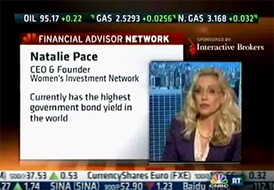 Natalie Wynne Pace is an Advocate for Sustainability Financial Literacy & Women's Empowerment. Natalie is the bestselling author of The Power of 8 Billion: It's Up to Us and is the co-creator of the Earth Gratitude Project. She has been ranked as a No. 1 stock picker, above over 835 A-list pundits, by an independent tracking agency (TipsTraders). Her book The ABCs of Money remained at or near the #1 Investing Basics e-book on Amazon for over 3 years (in its vertical), with over 120,000 downloads and a mean 5-star ranking. The 5th edition of The ABCs of Money and the 2nd edition of Put Your Money Where Your Heart Is were released in 2021. Follow her on Instagram. Natalie Pace's easy as a pie chart nest egg strategies earned gains in the last two recessions and have outperformed the bull markets in between. That is why her Investor Educational Retreats, books and private coaching are enthusiastically recommended by Nobel Prize winning economist Gary S. Becker, TD AMERITRADE chairman Joe Moglia, Kay Koplovitz and many Main Street investors who have transformed their lives using her Thrive Budget and investing strategies. Click to view a video testimonial from Nilo Bolden. Check out Natalie Pace's Apple Podcast. Watch videoconferences and webinars on Youtube. Other Blogs of Interest 11-Point Green Checklist for Schools. Artificial Intelligence and Nvidia's Blockbuster Earnings Report Biotech in a Post-Pandemic World Summer Sweepstakes 10 Wealth Secrets of Billionaires and Royals. What Happened to Cannabis? Bank of America has $100 Billion in Bond Losses (on Paper) The USA AAA Credit Rating is on a Negative Watch. Lithium. Essential to EV Life. I'm Just Not Good at Investing. Investors Ask Natalie. Should I Buy an S&P500 Index Fund? Investors Ask Natalie. Bonds Lost More than Stocks in 2022. Tesla's Model Y is the Bestselling Car in the World. 2023 Company of the Year Sell in May and Go Away? Do Cybersecurity Risks Create Investor Opportunities? Writers Strike, While Streaming CEOs Rake In Hundreds of Millions Annually. I Lost $100,000. Investors Ask Natalie. Artificial Intelligence Report. Micron Banned in China. Intel Slashes Dividend. Buffett Loses $23 Billion. Branson's Virgin Orbit Declares Bankruptcy. Insurance Company Risks. Schwab Loses $41 Billion in Cash Deposits. The Debt Ceiling Crisis. What's at Stake? Fiat. Crypto. Gold. BRICS. Real Estate. Alternative Investments. BRICS Currency. Will the Dollar Become Extinct? Empty Office Buildings & Malls. Frozen Housing Market. The Online Global Earth Gratitude Celebration 7 Green Life Hacks The Debt Ceiling. Will the U.S. Stop Paying Bills in June? Fossil Fuels Touch Every Part of Our Lives Are There Any Safe, Green Banks? 8 Fires the Federal Reserve Board Needs to Put Out. 7 Ways to Stash Your Cash Now. Lessons from the Silicon Valley Bank Failure. The 2 Best Solar Stocks Which Countries Offer the Highest Yield for the Lowest Risk? Rebalance By the End of March Solar, EVs, Housing, HSAs -- the Highest-Yield in 2023? Are You Anxious or Depressed over Money? Why We Are Underweighting Banks and the Financial Industry. You Stream all the Channels. Should You Invest, Too? NASDAQ is Still Down -26%. Are Meta & Snap a Buy? 2023 Bond Strategy Emotions are Not Your Friend in Investing Investor IQ Test Investor IQ Test Answers Bonds Lost -26%, Silver Held Strong. 2023 Crystal Ball for Stocks, Bonds, Real Estate, Cannabis, Gold, Silver. Tilray: The Constellation Brands of Cannabis New Year, New Healthier You Tesla's $644 Billion Fall From Mars Silver's Quiet Rally. Save Thousands Annually With Smarter Energy Choices Is Your FDIC-Insured Cash Really Safe? Money Market Funds, FDIC, SIPC: Are Any of Them Safe? My 24-Year-Old is Itching to Buy a Condo. Should I Help Him? The 12-Step Guide to Successful Investing. Gardeners Creating Sanctuary & Solutions in Food Deserts. The Bank Bail-in Plan on Your Dime. Rebalancing Your Nest Egg IQ Test. Answers to the Rebalancing Your Nest Egg IQ Test. Important Disclaimers Please note: Natalie Pace does not act or operate like a broker. She reports on financial news, and is one of the most trusted sources of financial literacy, education and forensic analysis in the world. Natalie Pace educates and informs individual investors to give investors a competitive edge in their personal decision-making. Any publicly traded companies or funds mentioned by Natalie Pace are not intended to be buy or sell recommendations. ALWAYS do your research and consult an experienced, reputable financial professional before buying or selling any security, and consider your long-term goals and strategies. Investors should NOT be all in on any asset class or individual stocks. Your retirement plan should reflect a diversified strategy, which has been designed with the assistance of a financial professional who is familiar with your goals, risk tolerance, tax needs and more. The "trading" portion of your portfolio should be a very small part of your investment strategy, and the amount of money you invest into individual companies should never be greater than your experience, wisdom, knowledge and patience. Information has been obtained from sources believed to be reliable. However, NataliePace.com does not warrant its completeness or accuracy. Opinions constitute our judgment as of the date of this publication and are subject to change without notice. This material is not intended as an offer or solicitation for the purchase or sale of any financial instrument. Securities, financial instruments or strategies mentioned herein may not be suitable for all investors. 11-Point Green Checklist for Schools Written by Natalie Pace and Edd Moore. With a special shout-out to former Damers Head Teacher Catherine Smith, who is now with The Harmony Project. Catherine always found a way to support sustainability, including making room in the site plan for a kitchen, where the children can cook food they've grown and eggs they've gathered in their hen house. There are so many upsides to going green at school. The students will be more engaged, and eat healthier food. Many schools can save hundreds of thousands of dollars annually, which can go for enhancing the curriculum, such as adding instruments and a music program, and other resources that make learning more fun. Some schools create and sell sustainable products to raise funds for their next green goal. The children at Damers First School in Poundbury, England used proceeds from their compost and Waxtastic No Plastic product to put in a pond and nature area. Even better, there are organizations that have already done the heavy lifting of creating standards-based curriculum, crowdsourcing funding and showing that all of the green tips below can be achieved over a carefully-crafted multi-year plan. Below is the 11-Point Green Checklist for Schools 1. School Garden 2. Nature Area 3. Healthy, Local and Organic Food 4. Plastic Free 5. Recycled Paper 6. #NoExcuseForSingleUse 7. Composting 8. Energy Audit: Energy Efficiency, Human Behavior 9. Walk or Bike to School 10. Integrating Sustainability Throughout the Curriculum 11. Solar Power? And here is more information on each point. School Garden School gardens offer hands-on study that can span the spectrum, from science and math, to cooking and language arts. Kids who grow their own vegetables like eating them. While touring The Edible Schoolyard in Berkeley, California, my middle school guide confessed that her favorite thing to eat was kale pesto! Dr. Sherridan Ross, a co-founder of Compton Community Garden, loves telling the story of a kid who gathered up a t-shirt full of peas to take home with him after sampling one that he was initially unwilling to stick in his mouth. Green Our Planet’s student-run farmer’s market is the largest in the nation, and raised over $22,000 in 2023! Nature Area Does your school have a carpet of grass, or is it xeriscaped with native plants? Green Our Planet taps county funds to eliminate grass in Las Vegas schools, and then uses the proceeds to set up student gardens. According to Ciara Byrne, the co-CEO and co-founder of Green Our Planet, over 50 million gallons of water is being saved each year by 200 schools in the area. Native plants offer important biodiversity lessons in science that fly off the page. Will butterflies visit your native milkweed plants? Identifying native wildflowers and trees is important for children. In learning about nature, they also learn from nature. Year 1 Damers First School students recorded what they discovered from their own Nature Area using a Nature Journal, documenting what they found in drawings, notes and “I wonder” questions. They then used this knowledge to teach their family and friends about what they found in other places around their community. Students also took guests on a tour of the grounds naming and giving facts about what was growing. This was all part of the Nature Premium Trial by the Harmony Project to encourage children to get out into nature. Damers First School was given £1000 to use as part of this project. The findings will be shared with U.K. The Department of Education with the view that all schools across England will get funding to help children get out into nature. Healthy, Local and Organic Food Are you concerned about the nutritional value of your child’s lunch? After ripping up concrete to set up permaculture gardens, Chef Alice Waters, the founder of The Edible Schoolyard, donated recipes that the kids use to cook their own food. While transitioning from heat-and-serve meals that are served on disposable plates will require more than planting a garden, your child’s health is worth the attention, activism and diligence of your PTA. Plastic Free I joke that the most powerful green lobby in England is the 4-9-year-olds at Damers First School in Poundbury, England. Through letter writing to the companies that deliver their food (language arts skills), the students were successful in getting their food delivered without all of the excess plastic covering. Watch the Damers video at YouTube.com/@EarthGratitude, if you’d like to learn more about the awards and stellar success that Damers has had with its Green Checklist. After getting rid of more than 90% of the plastic at their own school, they went out into the community to convince business leaders to do the same. Tom Amery, the CEO of Brace of Butchers, was inspired by the students to create Naked Brace, a shop that sells bulk goods and produce, including milk that is dispensed in your own reusable glass bottle, without plastic. Recycled Paper The NRDC has graded toilet paper companies in the below Report Card. Using recycled toilet paper is important to preserving our forests and trees (which are some of the best and only CO2 drawdown machines we’ve currently got). Schools go through a lot of paper, which should be recycled at the point of purchase and after use. #NoExcuseForSingleUse Less than 9% of plastic gets recycled. In the U.K., over 16 billion single use paper cups are disposed of each year. That means 6.5 million trees are razed, 4 billion gallons of water is wasted and enough energy to power 54,000 homes has to be drained. Globally, the total is estimated to be a staggering 500 billion cups that are used and tossed annually. Middle and high schoolers should know these facts. Elementary school students (and all of us) should know that there is no excuse for single use. Composting Food thrown in the garbage ends up as methane in a landfill – a gas more harmful than CO2. Compost is not just green, as in sustainable. It can also raise funds for the school. Whether your school establishes a Compost Row, like The Edible Schoolyard (click to watch a short instructional video), or purchases a compost machine like Poundbury has, there’s a lot to learn and a lot to gain by turning food scraps into a soil enricher that can be used in the Student Garden, in addition to the gardens of the parents, teachers and administrators at the school. Energy Audit: Energy Efficiency, Human Behavior School energy auditors use STEM (science, technology, engineering and math) when they are educating everyone about best energy practices, and holding them accountable. Optimistic, fun and informative signage can also encourage students to do the right thing. Auditors can identify areas to improve every day sustainability, in the quest for saving money, becoming more energy efficient, and getting closer to net zero. 11-year-old Isla Lester (a former student of Edd Moore, the eco coordinator at Damers First School) has become such a respected green youth leader that she opened Earth Day in Poundbury, heads up her own school Waste Warriors eco-club, is the U.K. Ambassador for Funky Kids Radio in Australia, and has been featured on BBC Bite Size Radio. Students that join eco clubs, volunteer to be energy auditors and grow, harvest and prepare their own food and meals become the sustainability experts of tomorrow, while gaining confidence and improving their health. Walk or Bike to School Many students live within walking distance of their local school. Are parents taking advantage of that? The health benefits are profound and important, particularly since obesity has become a crisis in America, with 20% of students obese (and 42% of adults). Additionally, 28% of CO2 emissions come from transportation. So, getting kids out of the car (and the dreaded carpool lineup) and onto their bikes and scooters is a triple win for the planet, the family budget (less gas expenditures), and personal health. Integrating Sustainability Throughout the Curriculum Creating greater harmony with our home planet is a theme that can weave throughout all of the school curriculum. The Harmony Project, which is based out of the U.K., offers teacher training and standards-based curriculum, with the aim of “putting sustainability and Nature at the heart of learning.” Solar Power? If you live in a sunny place, then consider powering your school with solar. Electricity is expensive and is only going to get more so. The sun has been offering power at the same price for millennia. With the low price of solar panels and the benefit of government incentives, the payback time on solar can be as low as 4-7 years. Thereafter all of the money that would have made the utility company rich can now benefit the teachers and students. Resources There are free ebooks, videos and other resources at EarthGratitude.org. Many of the organizations mentioned in this blog offer outstanding models for your school to adopt. Bottom Line If: * Ron Finley and Compton Community Garden can create Eden in a food desert, * Kids at the Edible Schoolyard can grow, cook and delight in their own kale pesto (Alice Waters’ recipe!), * Damers First School students can eliminate plastic in their school and community, compost their food waste, harvest apples from their trees, build a nature area and power with solar and anaerobic digestion, Imagine what is possible in your neighborhood! Edd Moore and I will be hosting a free videoconference on these 11 Green Tips for Schools on Thursday Sept. 14 at 3 pm ET (noon PT). If you’d like to join us live, email [email protected] with VIDEOCON in the subject line. You can watch it back at https://www.youtube.com/nataliepace and https://youtube.com/@earthgratitude. Feel free to reach out to our team at [email protected] if you’d like me to speak to your PTA about this School Green Checklist. Please be sure to put School Green Checklist in the subject line. Edd Moore is also available for private consultations. You can reach him directly at any of the ways listed below. Get to Net Zero with Edd Moore https://www.facebook.com/GettoNetZero/ Edd Moore LinkedIn linkedin.com/in/edd-moore-a0369b86 Email: [email protected]  Edd Moore has been at the forefront of education around environment and sustainability for the last eleven years. He has built up the Primary School’s eco work from a blank canvas to one of the top Eco Schools in the country embedding the environment into the school’s curriculum. Edd has led the school he has worked for to win multiple national environment awards that include Eco Schools Eco Primary School of the Year, Surfers Against Sewage Schools Champion of the Year, and Jane Goodall’s Roots & Shoots UK Best Group of the Year, to name a few. Edd was one of 500 people to be named as a King Charles III Coronation Champion for his environmental work.  Natalie Wynne Pace is an Advocate for Sustainability, Financial Literacy & Women's Empowerment. Natalie is the bestselling author of The Power of 8 Billion: It's Up to Us and is the co-creator of the Earth Gratitude Project. She has been ranked as a No. 1 stock picker, above over 835 A-list pundits, by an independent tracking agency (TipsTraders). Her book The ABCs of Money remained at or near the #1 Investing Basics e-book on Amazon for over 3 years (in its vertical), with over 120,000 downloads and a mean 5-star ranking. The 5th edition of The ABCs of Money and the 2nd edition of Put Your Money Where Your Heart Is were released in 2021. Natalie Pace's easy as a pie chart nest egg strategies earned gains in the last two recessions and have outperformed the bull markets in between. That is why her Investor Educational Retreats, books and private coaching are enthusiastically recommended by Nobel Prize winning economist Gary S. Becker, TD AMERITRADE chairman Joe Moglia, Kay Koplovitz and many Main Street investors who have transformed their lives using her Thrive Budget and investing strategies. Click to view a video testimonial from Nilo Bolden.  Join us for our Restormel Royal Immersive Adventure Retreat. March 8-15, 2024. Email [email protected] to learn more. Register with friends and family to receive the best price. Click for testimonials, pricing, hours & details. There is very limited availability, and you must register early to ensure that you get the exact room you want. This retreat includes an all-access pass to all of our online training for a full year for two!  Join us for our Online Financial Freedom Retreat. Oct. 7-9, 2023. Email [email protected] or call 310-430-2397 to learn more. Register with friends and family to receive the best price. Click for testimonials, pricing, hours & details. Check out Natalie Pace's Apple Podcast. Watch videoconferences and webinars on Youtube. Other Blogs of Interest Artificial Intelligence and Nvidia's Blockbuster Earnings Report Biotech in a Post-Pandemic World Summer Sweepstakes 10 Wealth Secrets of Billionaires and Royals. What Happened to Cannabis? Bank of America has $100 Billion in Bond Losses (on Paper) The USA AAA Credit Rating is on a Negative Watch. Lithium. Essential to EV Life. I'm Just Not Good at Investing. Investors Ask Natalie. Should I Buy an S&P500 Index Fund? Investors Ask Natalie. Bonds Lost More than Stocks in 2022. Tesla's Model Y is the Bestselling Car in the World. 2023 Company of the Year Sell in May and Go Away? Do Cybersecurity Risks Create Investor Opportunities? Writers Strike, While Streaming CEOs Rake In Hundreds of Millions Annually. I Lost $100,000. Investors Ask Natalie. Artificial Intelligence Report. Micron Banned in China. Intel Slashes Dividend. Buffett Loses $23 Billion. Branson's Virgin Orbit Declares Bankruptcy. Insurance Company Risks. Schwab Loses $41 Billion in Cash Deposits. The Debt Ceiling Crisis. What's at Stake? Fiat. Crypto. Gold. BRICS. Real Estate. Alternative Investments. BRICS Currency. Will the Dollar Become Extinct? Empty Office Buildings & Malls. Frozen Housing Market. The Online Global Earth Gratitude Celebration 7 Green Life Hacks The Debt Ceiling. Will the U.S. Stop Paying Bills in June? Fossil Fuels Touch Every Part of Our Lives Are There Any Safe, Green Banks? 8 Fires the Federal Reserve Board Needs to Put Out. 7 Ways to Stash Your Cash Now. Lessons from the Silicon Valley Bank Failure. The 2 Best Solar Stocks Which Countries Offer the Highest Yield for the Lowest Risk? Rebalance By the End of March Solar, EVs, Housing, HSAs -- the Highest-Yield in 2023? Are You Anxious or Depressed over Money? Why We Are Underweighting Banks and the Financial Industry. You Stream all the Channels. Should You Invest, Too? NASDAQ is Still Down -26%. Are Meta & Snap a Buy? 2023 Bond Strategy Emotions are Not Your Friend in Investing Investor IQ Test Investor IQ Test Answers Bonds Lost -26%, Silver Held Strong. 2023 Crystal Ball for Stocks, Bonds, Real Estate, Cannabis, Gold, Silver. Tilray: The Constellation Brands of Cannabis New Year, New Healthier You Tesla's $644 Billion Fall From Mars Silver's Quiet Rally. Save Thousands Annually With Smarter Energy Choices Is Your FDIC-Insured Cash Really Safe? Money Market Funds, FDIC, SIPC: Are Any of Them Safe? My 24-Year-Old is Itching to Buy a Condo. Should I Help Him? The 12-Step Guide to Successful Investing. Gardeners Creating Sanctuary & Solutions in Food Deserts. The Bank Bail-in Plan on Your Dime. Rebalancing Your Nest Egg IQ Test. Answers to the Rebalancing Your Nest Egg IQ Test. Important Disclaimers Please note: Natalie Pace does not act or operate like a broker. She reports on financial news, and is one of the most trusted sources of financial literacy, education and forensic analysis in the world. Natalie Pace educates and informs individual investors to give investors a competitive edge in their personal decision-making. Any publicly traded companies or funds mentioned by Natalie Pace are not intended to be buy or sell recommendations. ALWAYS do your research and consult an experienced, reputable financial professional before buying or selling any security, and consider your long-term goals and strategies. Investors should NOT be all in on any asset class or individual stocks. Your retirement plan should reflect a diversified strategy, which has been designed with the assistance of a financial professional who is familiar with your goals, risk tolerance, tax needs and more. The "trading" portion of your portfolio should be a very small part of your investment strategy, and the amount of money you invest into individual companies should never be greater than your experience, wisdom, knowledge and patience. Information has been obtained from sources believed to be reliable. However, NataliePace.com does not warrant its completeness or accuracy. Opinions constitute our judgment as of the date of this publication and are subject to change without notice. This material is not intended as an offer or solicitation for the purchase or sale of any financial instrument. Securities, financial instruments or strategies mentioned herein may not be suitable for all investors. |
AuthorNatalie Pace is the co-creator of the Earth Gratitude Project and the author of The Power of 8 Billion: It's Up to Us, The ABCs of Money, The ABCs of Money for College, The Gratitude Game and Put Your Money Where Your Heart Is. She is a repeat guest & speaker on national news shows and stages. She has been ranked the No. 1 stock picker, above over 830 A-list pundits, by an independent tracking agency, and has been saving homes and nest eggs since 1999. Archives
July 2024
Categories |







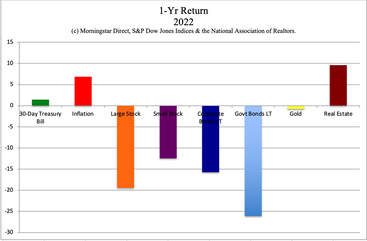
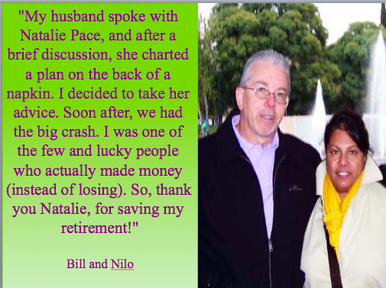
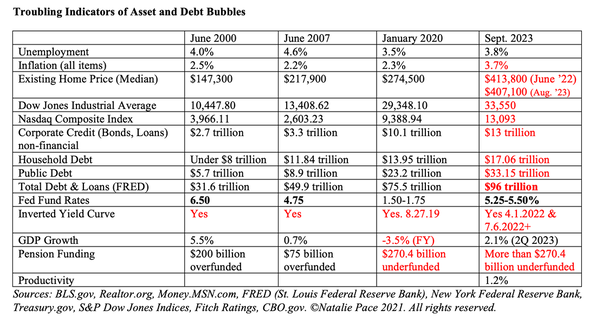

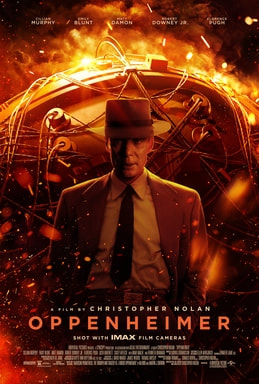
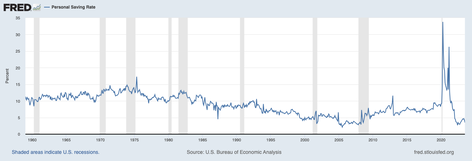

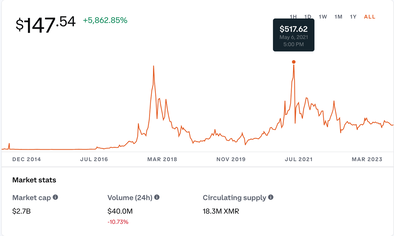
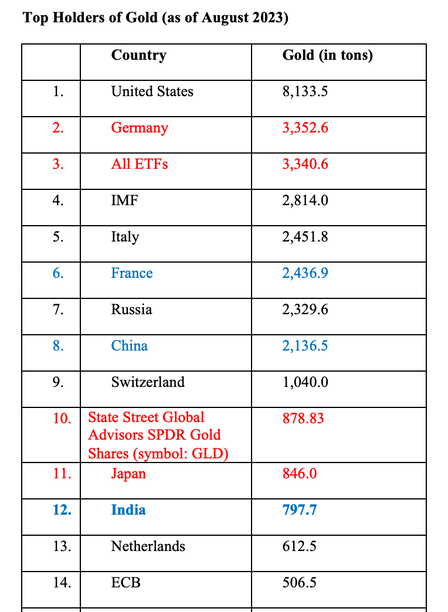
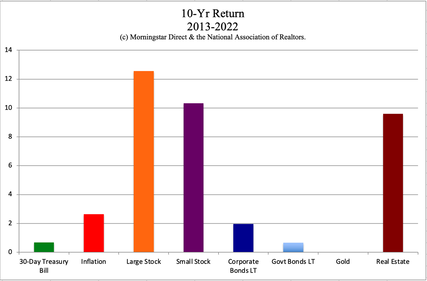

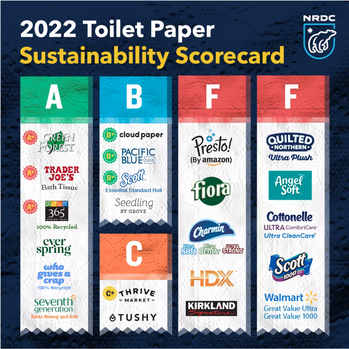

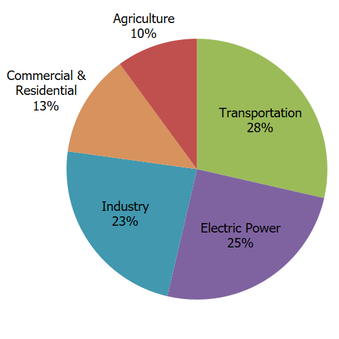
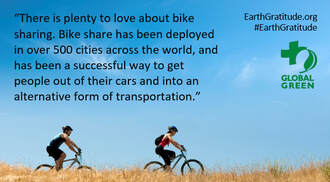
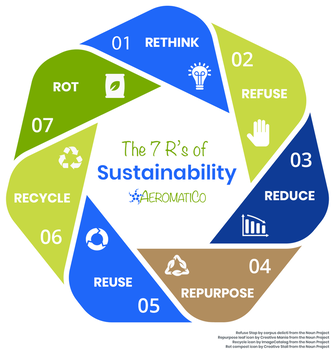
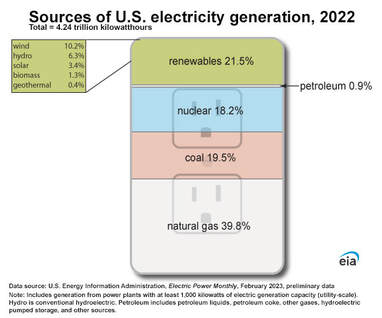
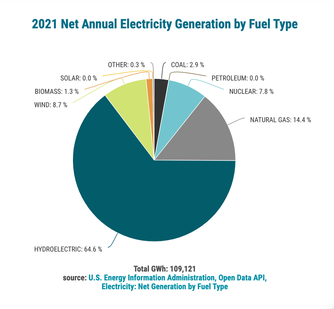
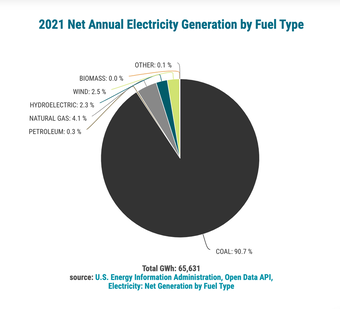
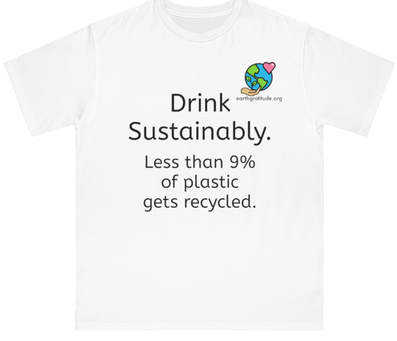
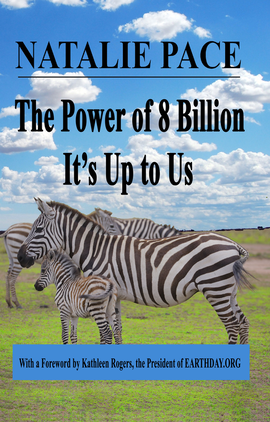
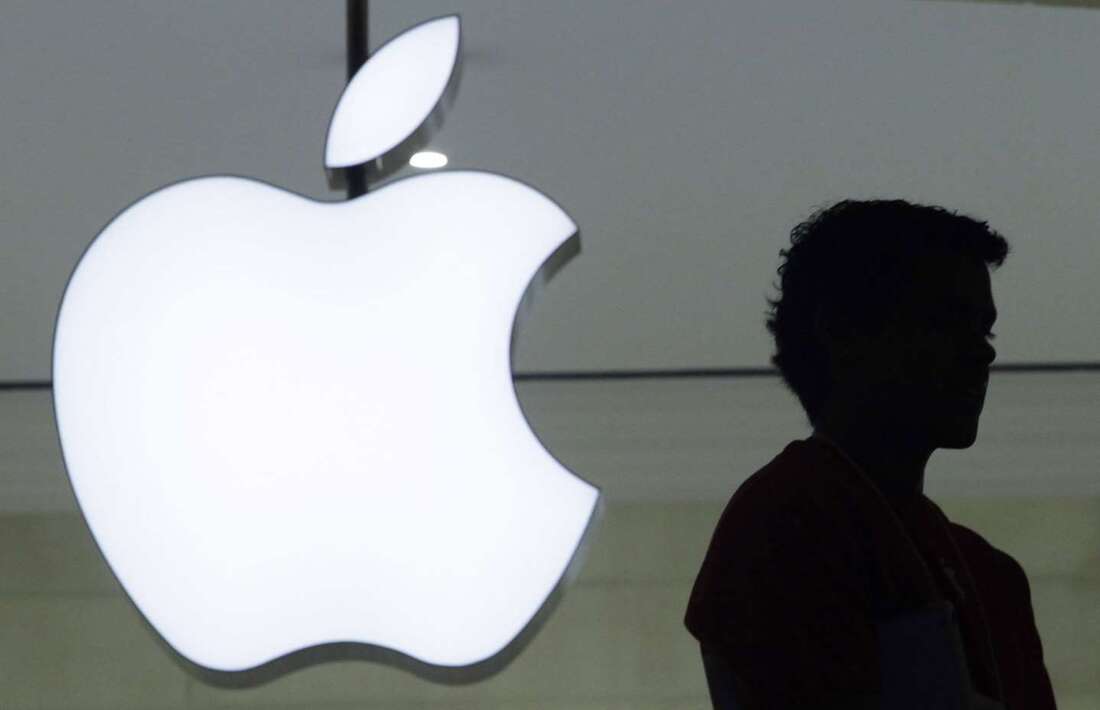

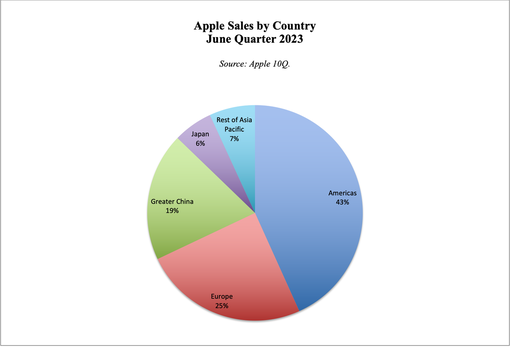
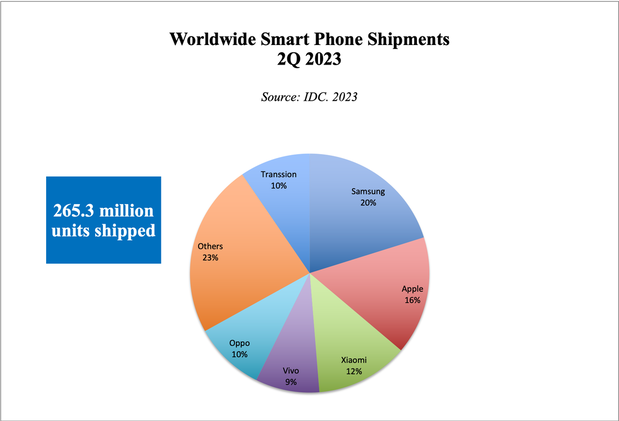
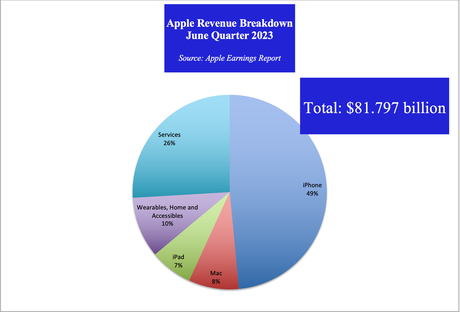

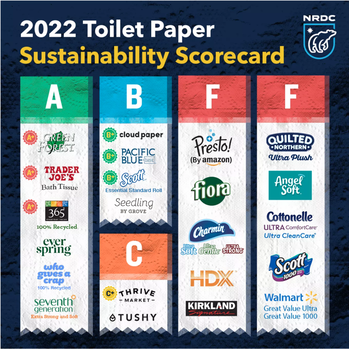
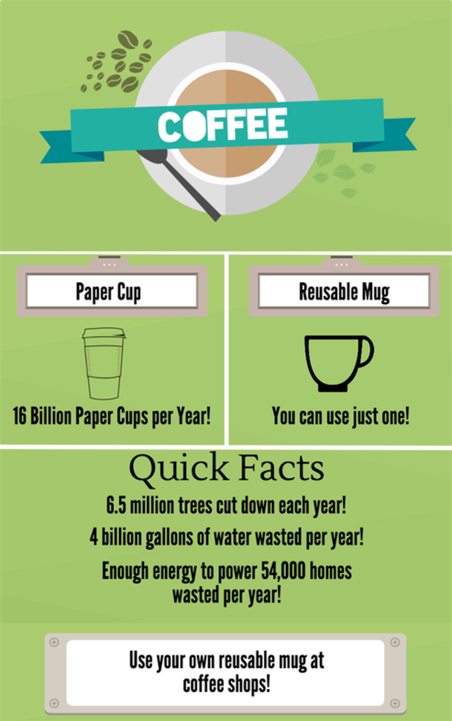
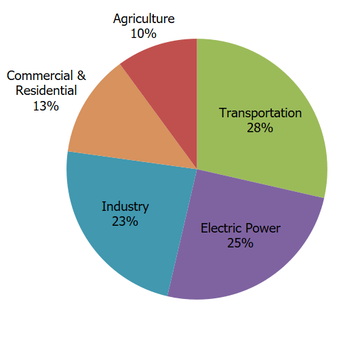
 RSS Feed
RSS Feed